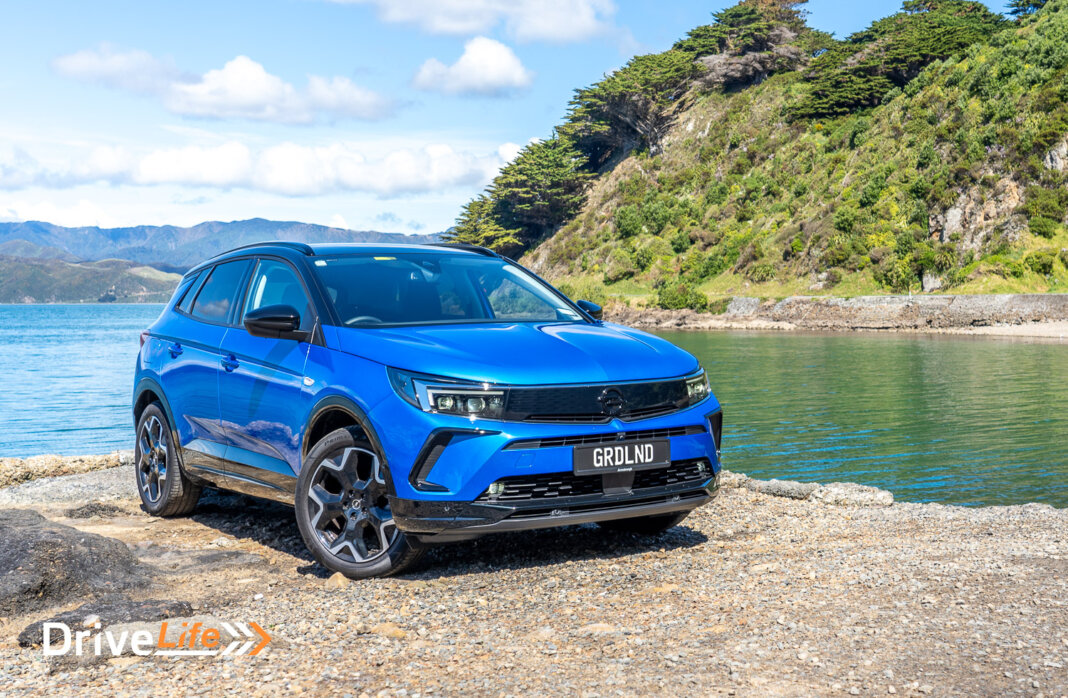If you were to ask the average person what the toughest segment in the automatic industry is, I expect most people would answer “small SUV” or something along those lines.
From a market that not that long ago had no players, we now have a market segment saturated with choices. That means one thing; if you’re selling a compact SUV, it had better stand out.
That brings us to the Opel Grandland; We’ve already reviewed the Opel Mokka SRi and the Opel Corsa SRi – both cars that are good, but don’t really stand out too much. Will the Grandland break that trend and storm the compact SUV market? We spent 700km behind the wheel to find out.
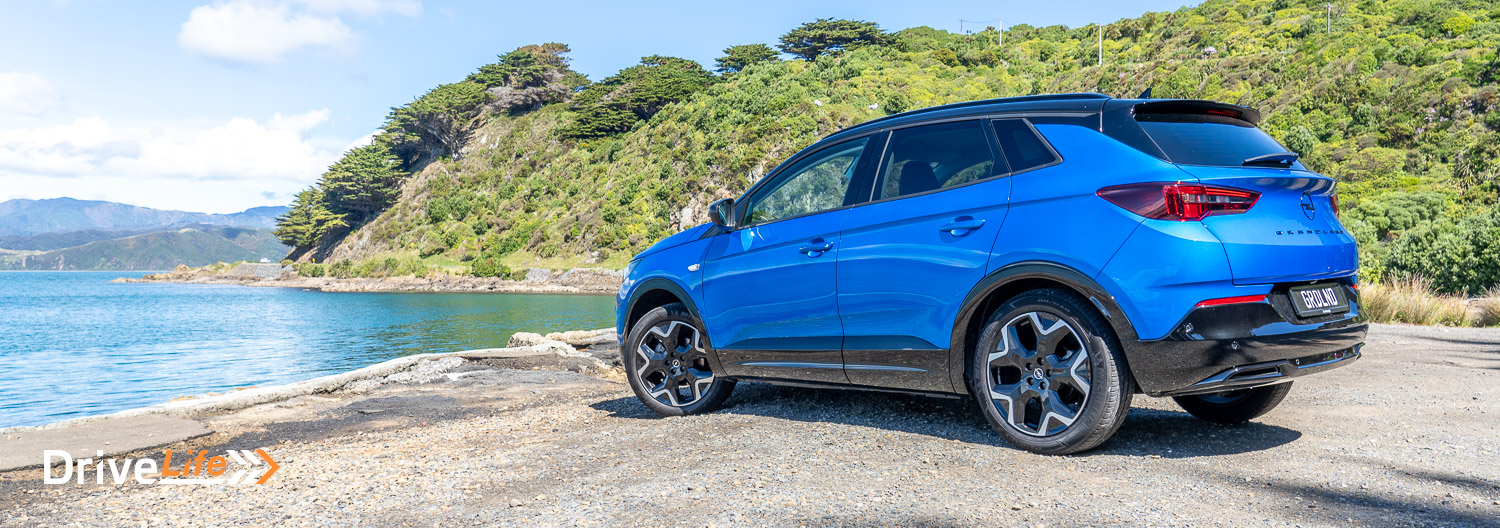
What We Like and Dislike About The 2023 Opel Grandland SRi
| What we like | What we don’t like |
| Smooth, quiet, torquey engine Design Interior space Equipment levels Ride quality General ergonomics Adaptive LED headlights Steering wheel controls Adaptive cruise control works well | Audio reverts to radio Jerkiness at low speeds Seat comfort Driving position Adaptive LED headlights |
What’s In The 2023 Opel Grandland Range?
Currently, New Zealand sees two models of Grandland:
- Grandland SRi (tested) $46,990
- Grandland Hybrid e-SRi $65,956
The base model has a 3-cylinder, 1.2-litre petrol engine with 96 kW of power and a decent 230 Nm of torque. This model has an 8-speed automatic transmission. Fuel economy is listed at 5.4L/100km, and this model takes 10.3 seconds to get to 100km/h.
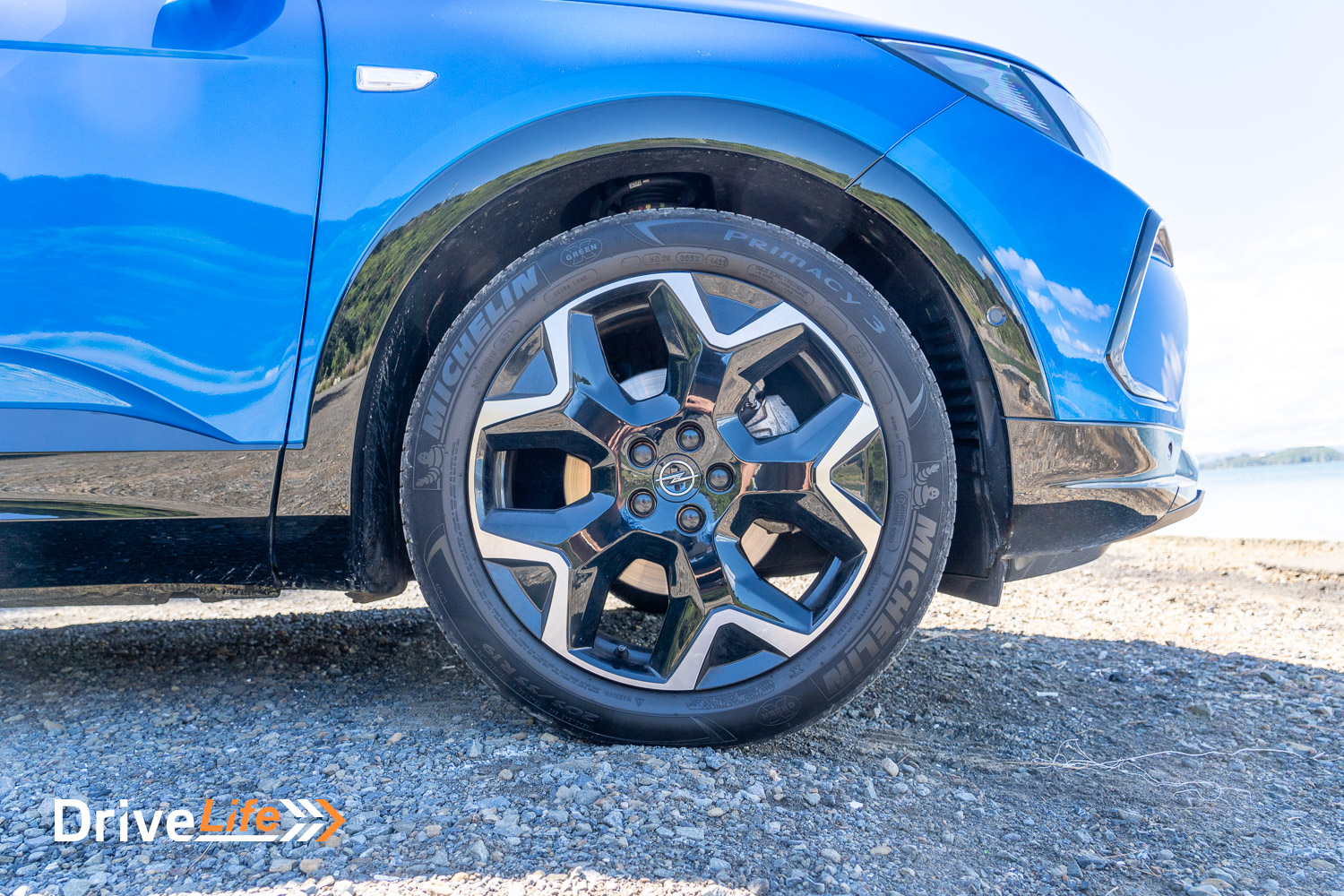
The plug-in hybrid version has a 1.6-litre, 4-cylinder petrol engine and a 13.2kWh battery pack. That equates to 165kW of combined power and 360Nm of combined torque. This model also runs an 8-speed automatic transmission. Opel suggests fuel consumption of 1.0L/100km and says the plug-in hybrid should do around 67km on a single charge. That model is now in run-out, with a replacement coming in mid-2024.
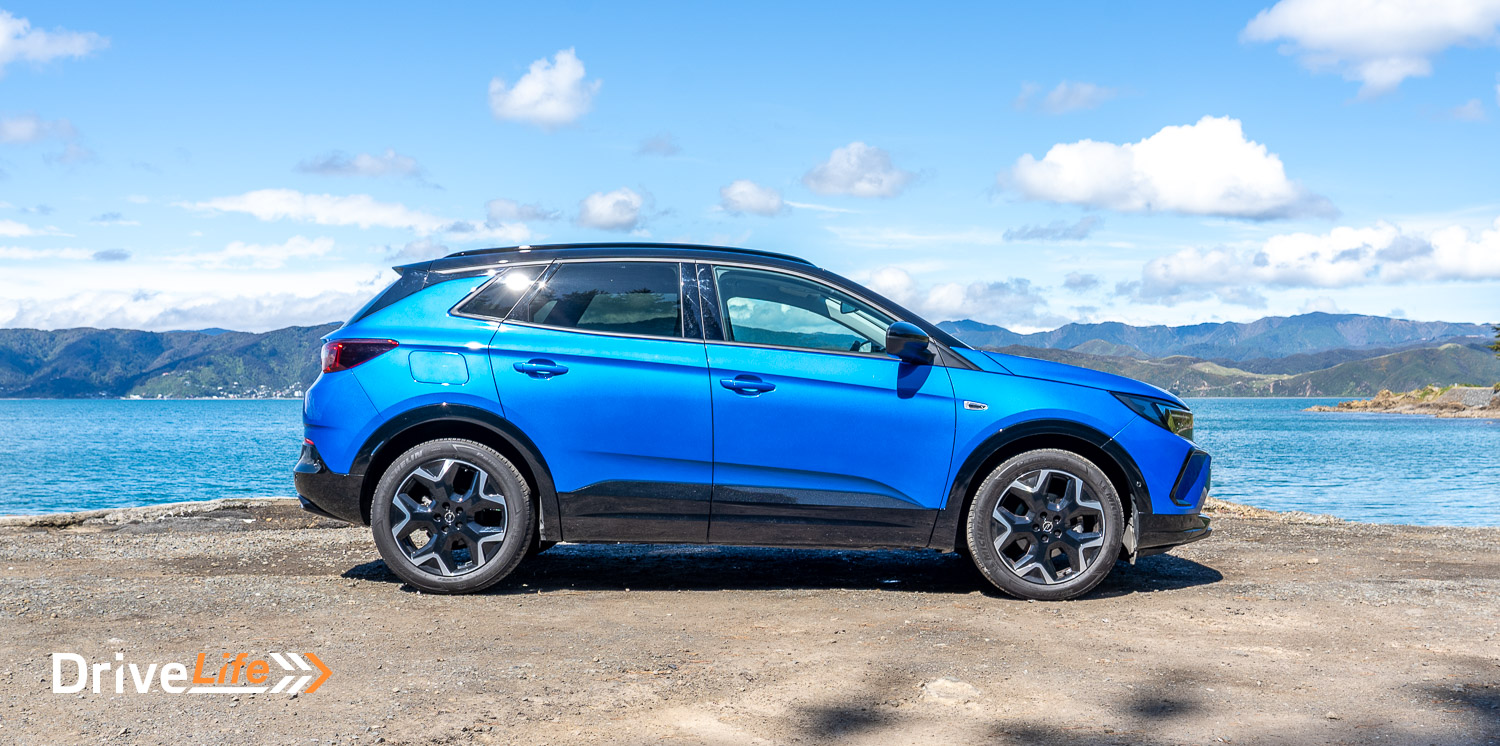
2023 Opel Grandland Standard Equipment Highlights
SAFETY AND SECURITY
- ABS with Electronic Braking Distribution (EBD) & Emergency Braking Assistance (EBA)
- Electronic Stability Programme (ESP)
- Airbags (x6): Driver & Front passenger, Front side, Front & Rear curtain
- Electronic code immobiliser, deadlocking & Child locking functionality on rear doors
- Front optimised safety headrests & Rear retractable headrests (x3), height-adjustable
- Front & rear three-point retractable seatbelts with force limiters (front & outer rear seats)
- Outer rear seat ISOFIX mounting points (x2) with Top Tether
- Tyre pressure monitoring
- Adaptive cruise control with Stop & Go function and Speed limiter
- Lane Keeping Assist & Road Edge Assist
- Lane Positioning Assist (semi-autonomous)
- Speed limit & Traffic Sign Recognition
- Advanced Emergency Braking with night function, pedestrian and cyclist detection
- Blind Spot Monitoring
- Driver Attend Alert
- Forward Collison Warning
LIGHTING AND VISIBILITY
- Intelligent Adaptive LED headlights with high beam assist
- LED DRLs
- LED front fog lights
- Automatic wipers
- Automatic headlights
- Welcome and Follow-Me-Home light function
INTERIOR FEATURES
- 12” digital instrument cluster
- 10” central touchscreen
- Heated flat-bottom leather steering wheel with paddle shifters
- Ambient lighting
- Alloy sports pedals
- Black Alcantara & leatherette trim
- Heated front seats with electric lumbar adjust and seat cushion extension
- Automatic dual-zone AC
- Rear air vents
- Electric folding and heated exterior mirrors
- Electric park brake with Hill Start Assist
- One-touch power windows
- Keyless entry and start
- Electric tailgate with foot sensor
- Apple CarPlay/Android Auto capability (wired)
- Qi Wireless phone charging
- Auto-dimming rearview mirror
You only get Jade White as a ‘free’ colour, so any other colour choice will attract a $550 fee, with Cobalt Blue adding $950 to the base price:
- Quartz Grey metallic
- Diamond Black metallic
- Crimson Red metallic
- Cobalt Blue pearlescent
Including the optional colour, our review car’s retail price is $47,940.
For a full list of specs and options available for the Opel Grandland SRi head on over to Opel New Zealand’s website.
How Does The 2023 Opel Grandland SRi Compare To Its Competition?
Well, we did say it’s a crowded market segment. The Grandland has a few hurdles to cross here.
All prices below exclude the refund or additional cost of the New Zealand Clean Car Programme.
| Make/ Model | Engine | Power/ Torque kW/Nm | Seats | Fuel L/100km | Towing Capacity | Boot Space, litres | Price (excl CCP) |
| Opel Grandland SRi | 1.2-litre, 3-cylinder turbo-petrol | 96/230 | 5 | 5.4 | 600 | 514 | $46,990 |
| Peugeot 2008 GT | 1.2-litre, 3-cylinder turbocharged petrol | 114/240 | 5 | 6.1 | 680 | 434 | $45,990 |
| Mazda CX-30 MHEV Blackout | 2.0-litre, 4-cylinder petrol, mild-hybrid | 114/200 | 5 | 6.3 | 600 | 317 | $44,390 |
| Skoda Kamiq Monte Carlo | 1.5-litre 4-cylinder turbo intercooled petrol | 110/250 | 5 | 5.8 | 630 | 400 | $42,990 |
| Mitsubishi Eclipse Cross VRX | 1.5-litre, turbo-petrol 4-cylinder | 112/254 | 5 | 8.1 | 750 | 405 | $41,990 |
| Kia Sportage LX Plus Urban | 2.0-litre, 4-cylinder petrol | 115/192 | 5 | 9.0 | 750 | 543 | $41,990 |
| Nissan X-Trail ST 2WD | 2.5-litre, 4-cylinder petrol | 126/233 | 5 | 8.1 | 750 | 565 | $39,990 |
| MG HS Excite | 1.5-litre 4-cylinder turbo-petrol | 119/250 | 5 | 7.3 | 750 | 463 | $35,990 |
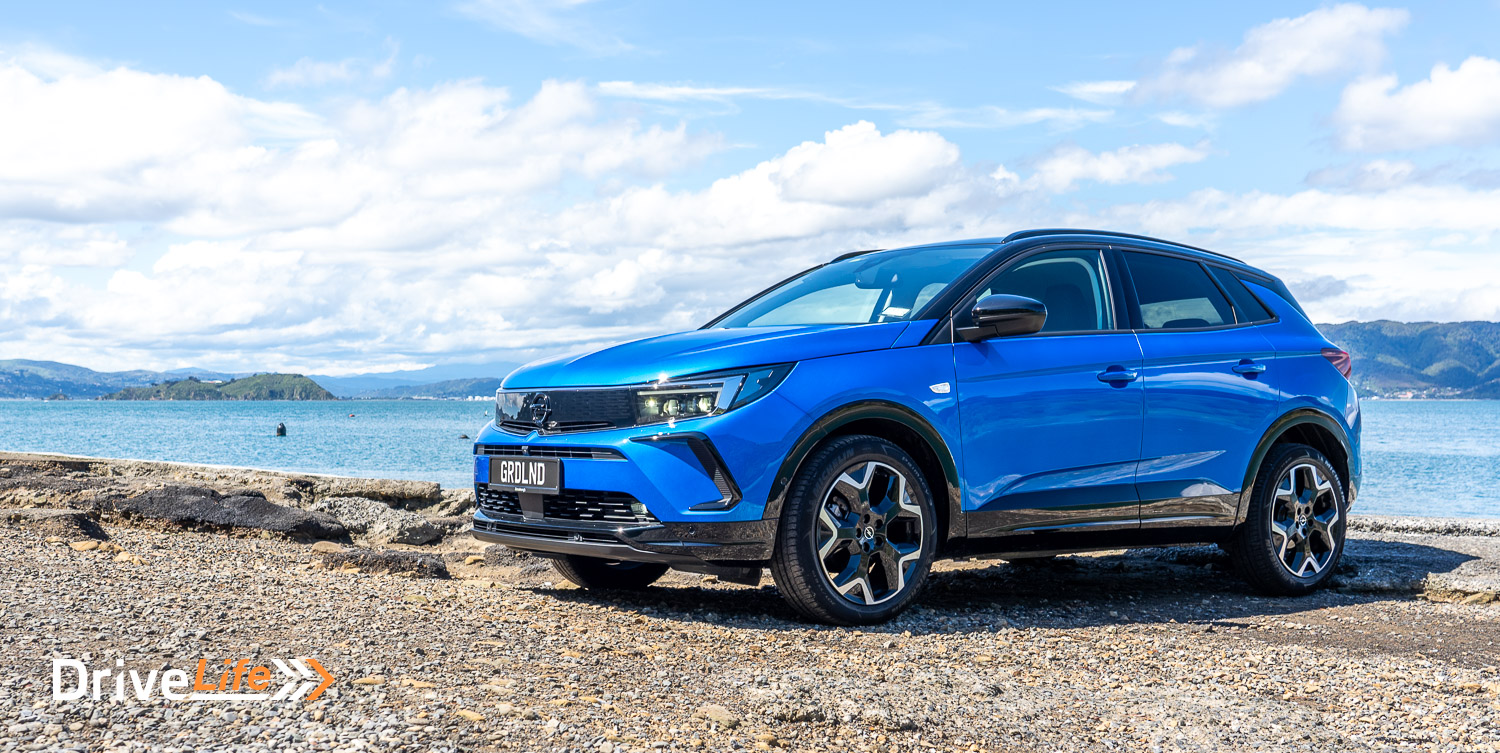
First Impressions Of The 2023 Opel Grandland SRi
I must admit, I’d be stumping up the extra $950 for Cobalt Blue for my Grandland. It looks superb, and I got many comments on the car during my time with it. Most of those comments were on the colour and how it suits this model, and it really does; the Grandland absolutely pops in Cobalt Blue.
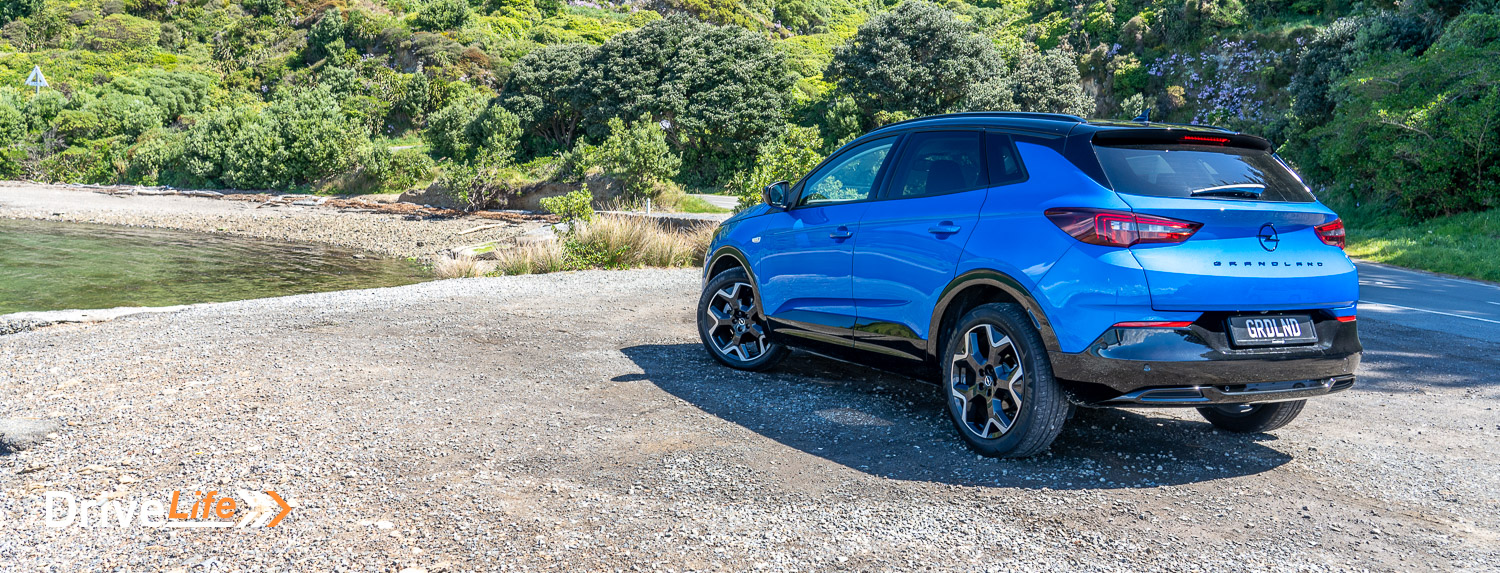
Other comments and questions centred around the car being an EV. The Grandland SRi isn’t an EV, but more than one person saw the front and assumed it was. It does have that EV look to it, but in a nice way; the front of the Grandland has been designed well, with those adaptive LED headlights complementing the overall design. It looks good.
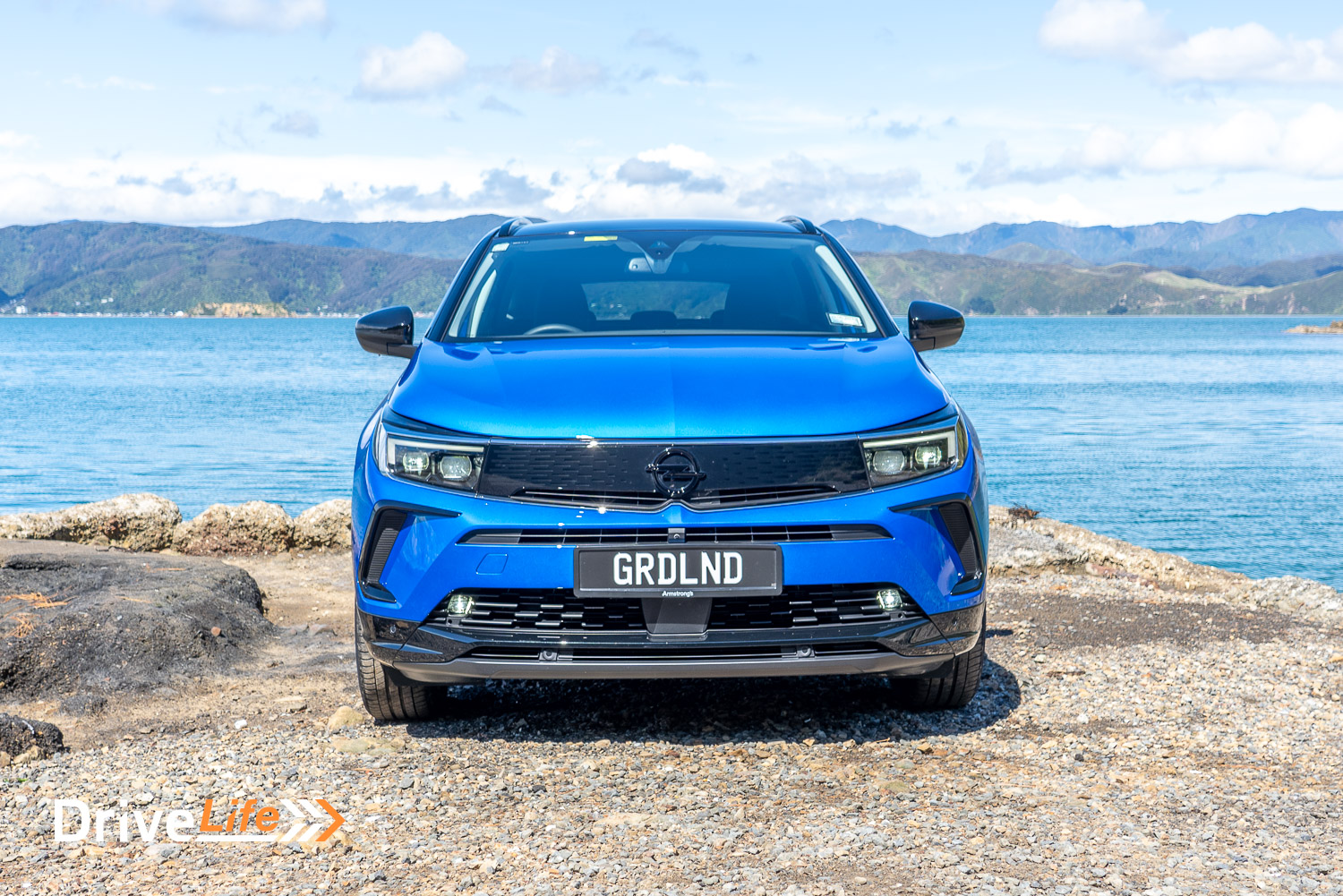
What’s The Interior Like In The 2023 Opel Grandland SRi?
Nice to see that the Grandland has wide-opening doors, meaning easy entry and exit. After a run of test cars with all-black interiors, it was great that our Grandland test car had a white headlining; It lifts the interior instantly and adds a sense of space. That sense of space is not really an illusion – there’s some width in the Grandland, and there’s good headroom front and rear, although rear legroom is average for the class.
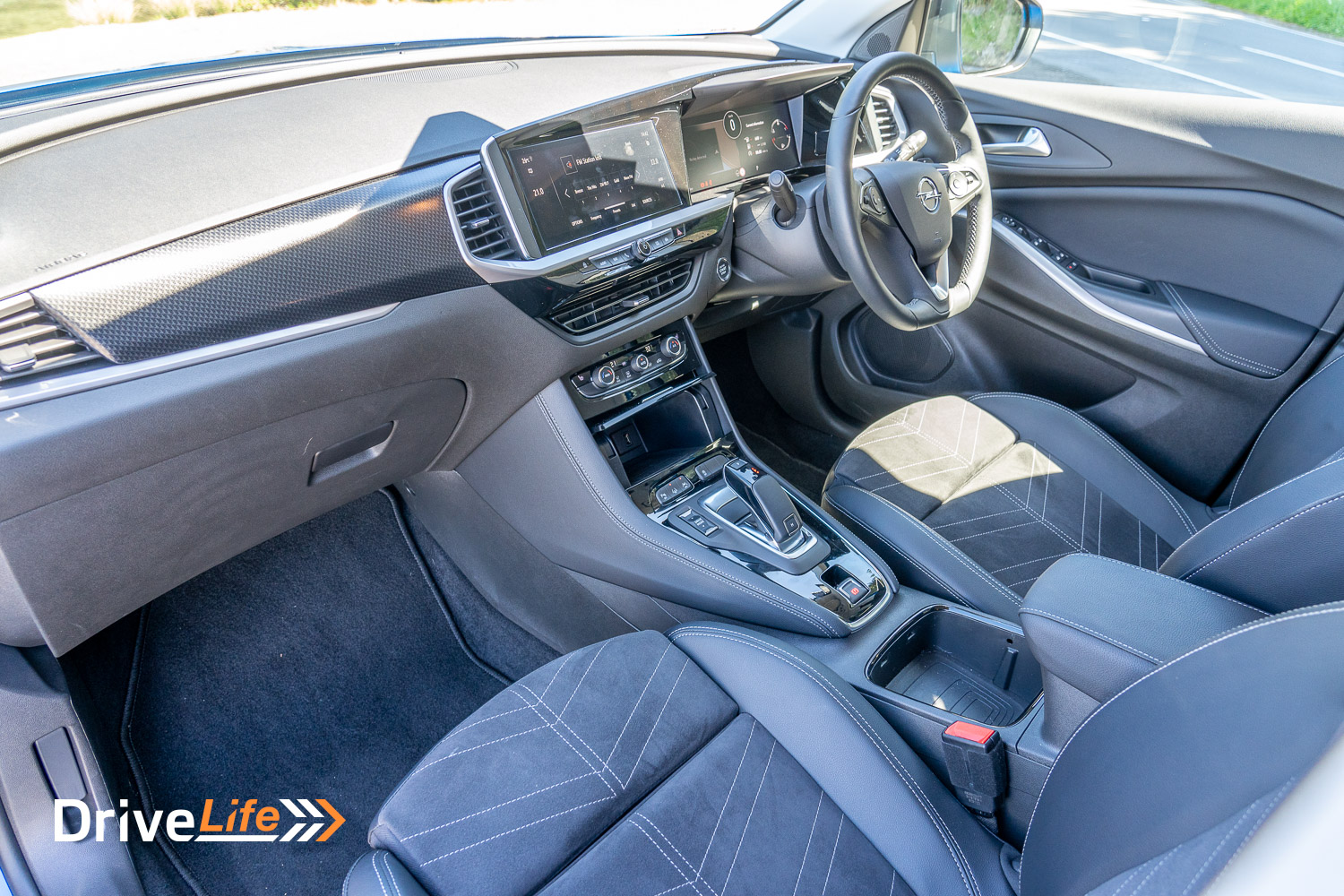
The whole interior is nicely finished, with contrasting stitching on the seats along with a stylish pattern sewn in, and some classy suede centre panels. The driver’s seat has 4-way electric lumbar adjustment and manual cushion height adjustment,
The chunky, flat-bottom steering wheel adds to the feeling of a bit of luxury although I wasn’t a fan of the piano black on the console and dash; it didn’t take long for these areas to be covered in dust and fingerprints.
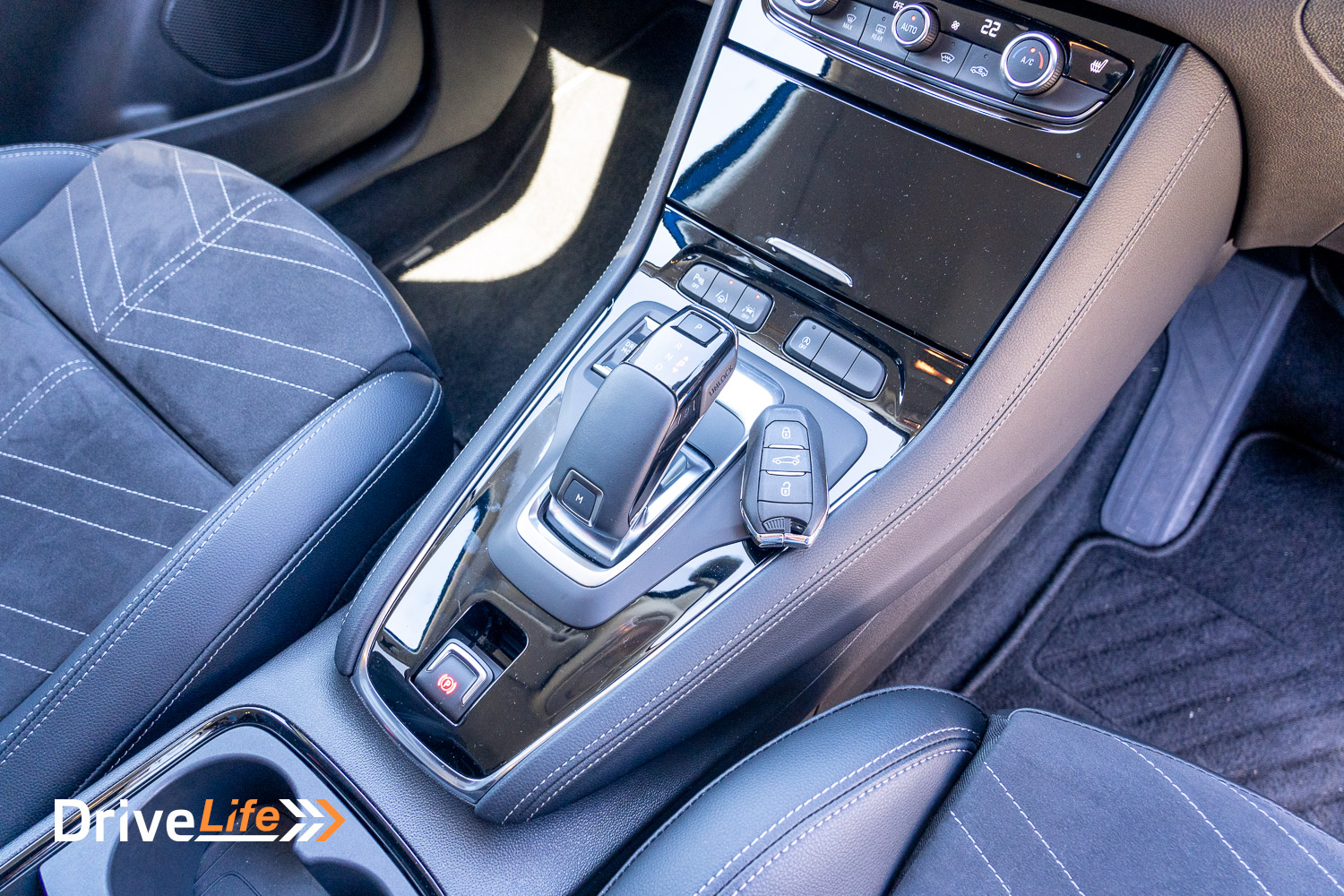
Another nice touch is the actual seat-heat buttons, rather than accessing this through a menu on the screen – something we are seeing more and more of. Up front, there is a single USB-A port along with a 12-volt socket for your dashcam while at the rear of the centre console is a cubby with an upright Qi charger; Opel is obviously trying to stop people from being distracted while driving, and having it back there under a lid should help that. Rear-seat passengers don’t get any USB ports but at least there are a couple of air vents back there.
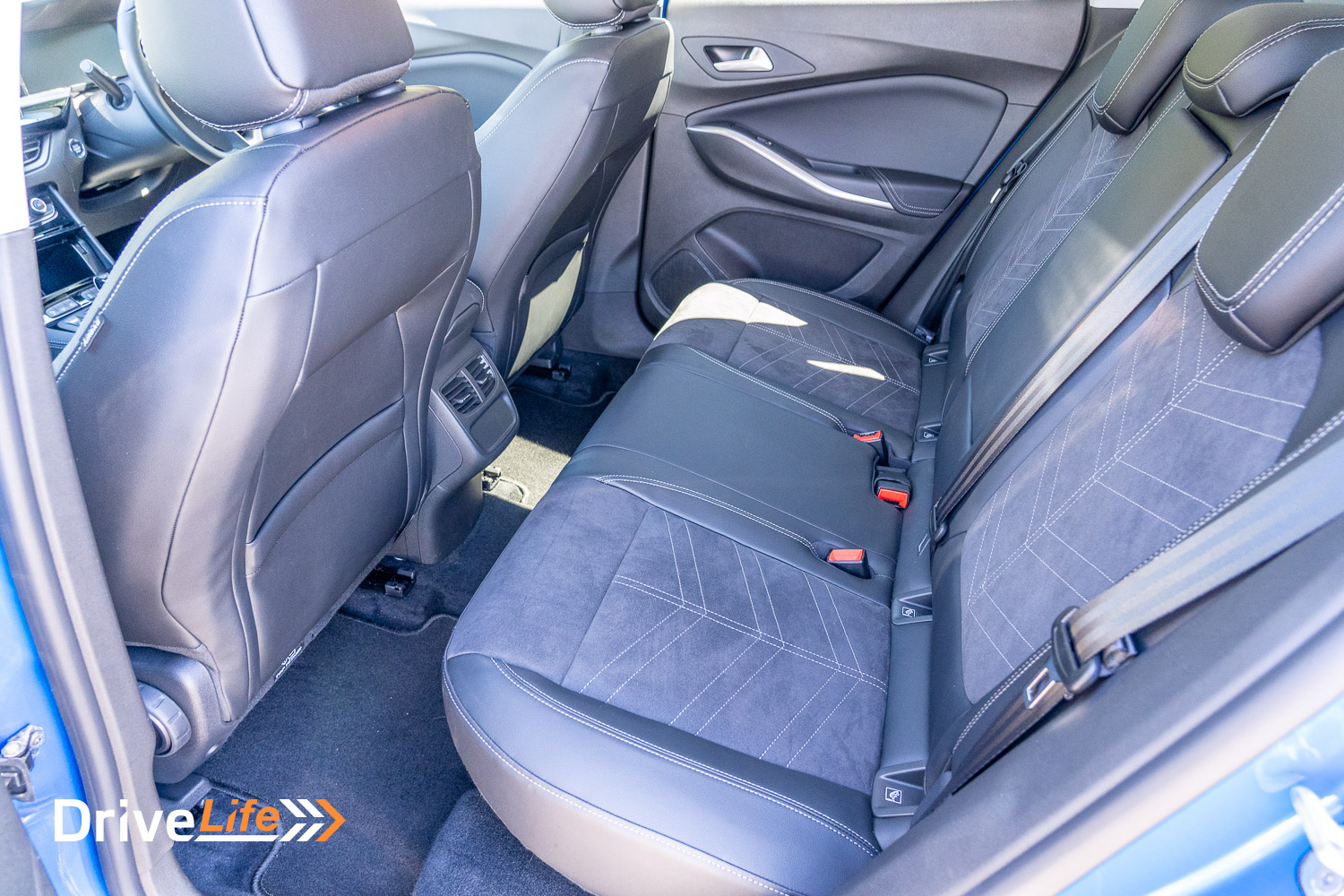
The boot is a reasonable size at 514 litres with the seats up and has a double-height floor to help cart taller things. There is a big spare wheel well under the floor, but you only get a tyre pump with your Grandland and no spare tyre. It does mean you get more space under there for bits of stuff you keep in the car but never, ever use and then only take out when you sell the car – you know the story.
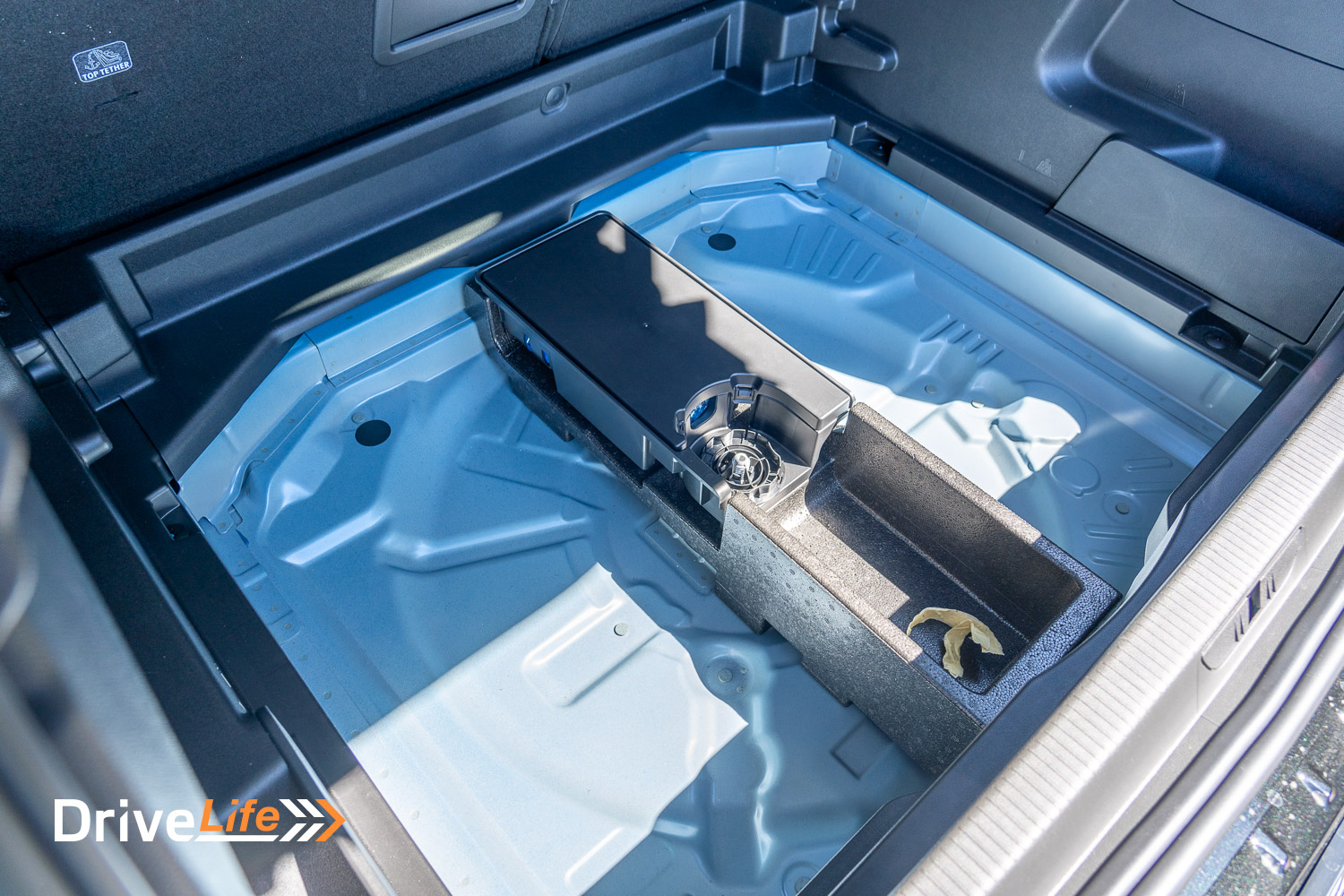
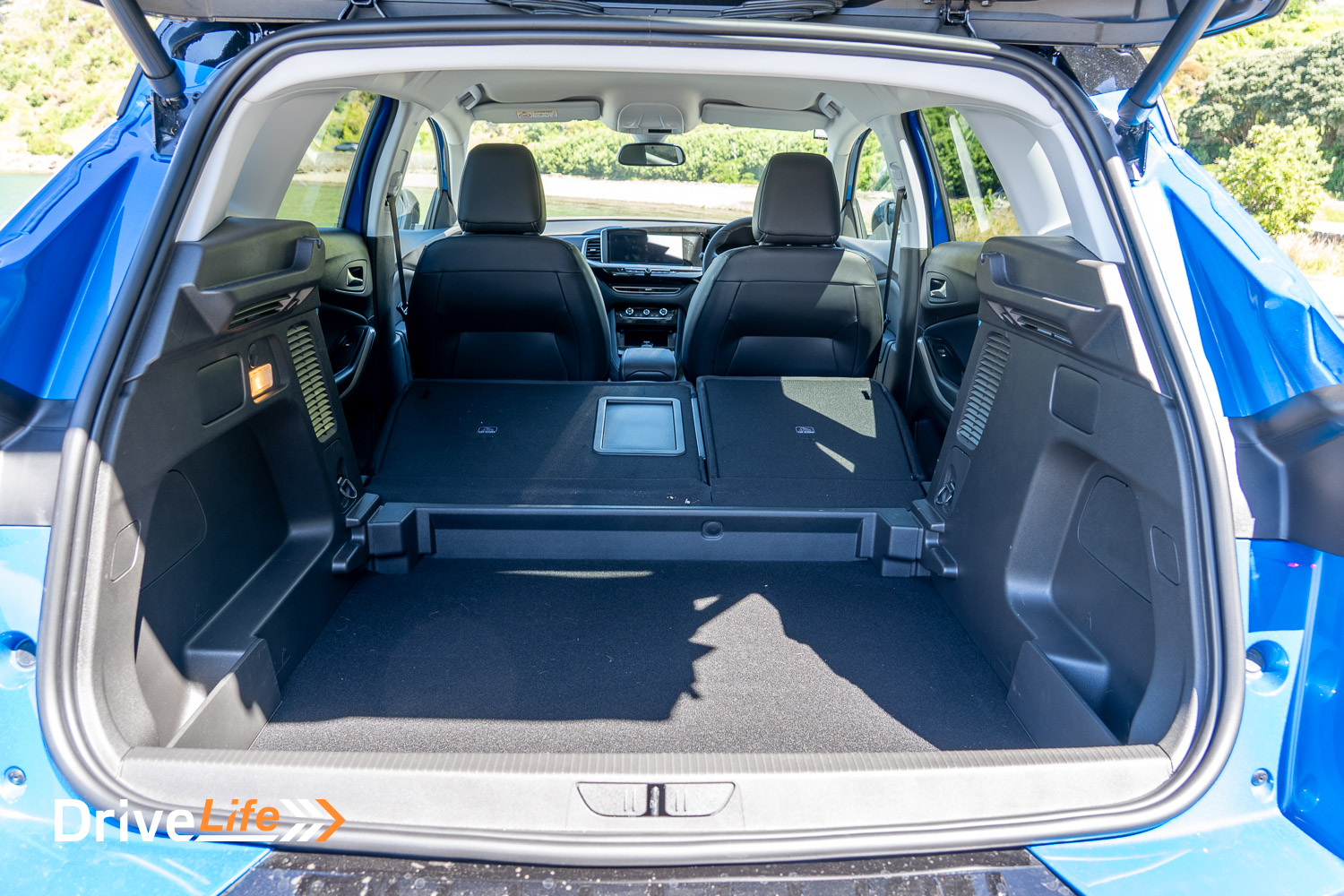
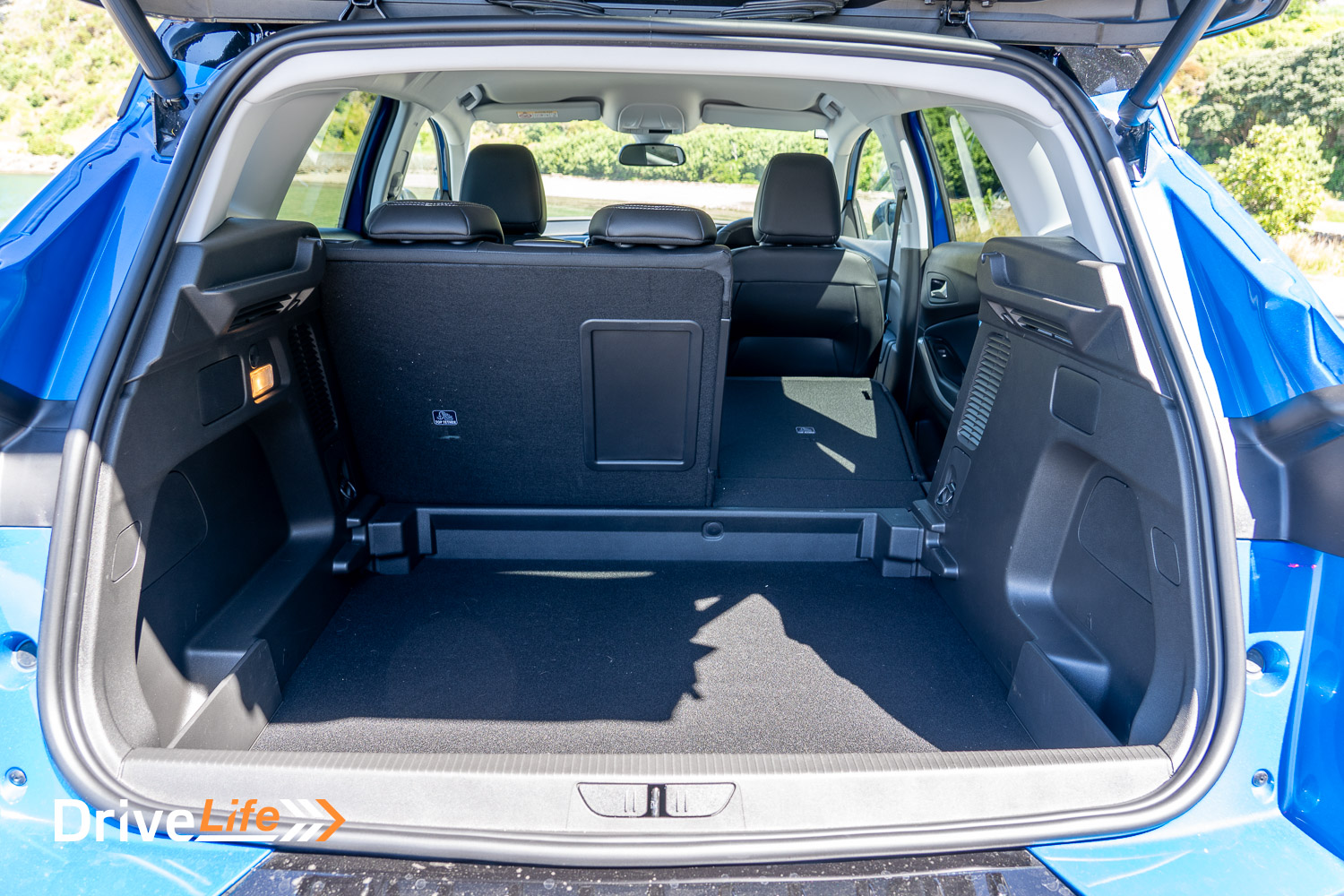
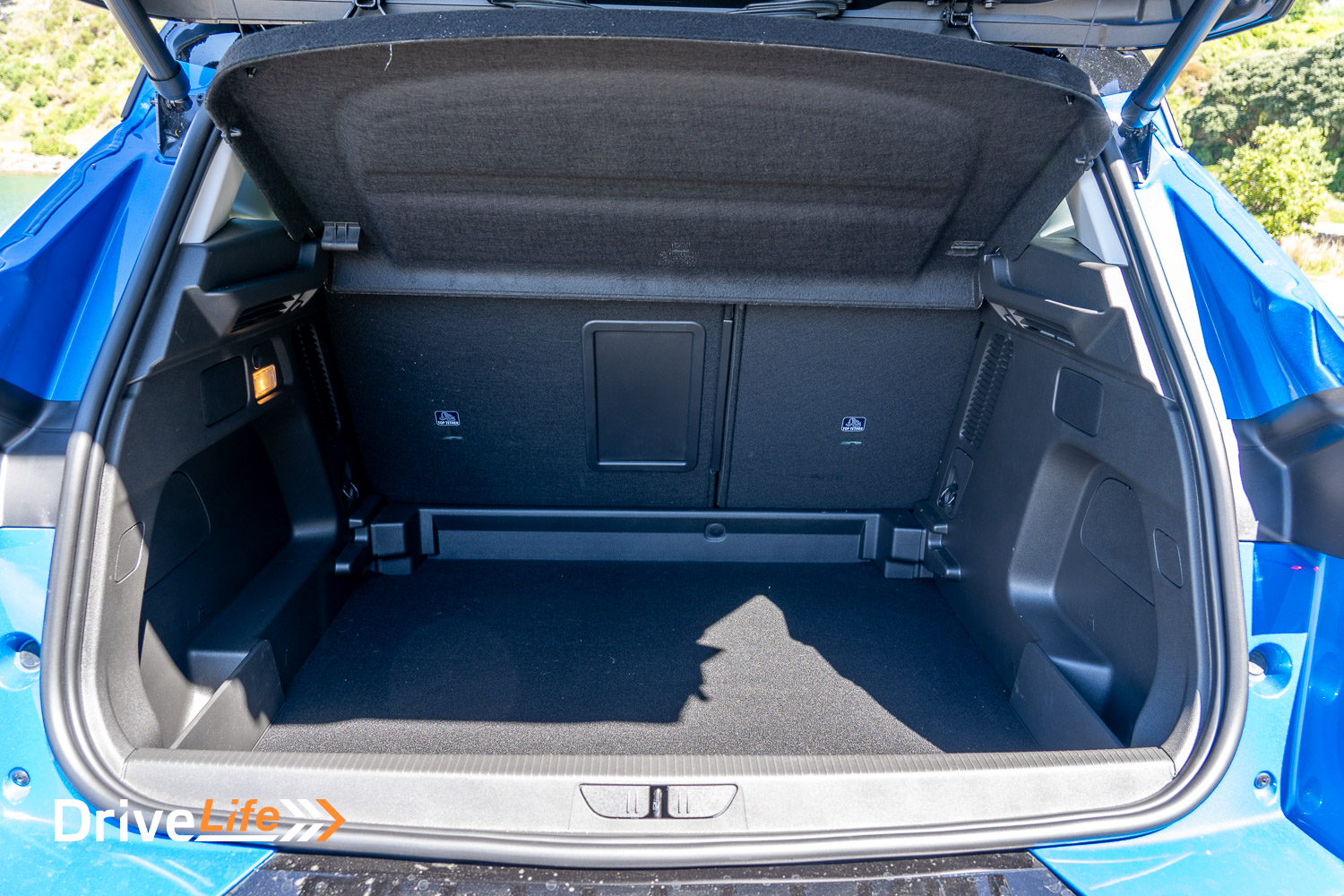
What’s The 2023 Opel Grandland SRi Like To Drive?
To declare my position here from the outset: I love the 1.2-litre, 3-cylinder turbo motor in the Grandland, that’s also fitted to other Opel models as well as Citroen and Peugeot, where the motor came from originally.
You understand why this engine has won awards when you drive any car that has it fitted; it’s so damn torquey, as well as fun. It’s quiet when it should be, like cruising on the motorway, but wind it out and it will give you a nice little growl that only a 3-cylinder can produce. Passengers can be stunned when you say it’s just 1,200cc and 3 cylinders – it’s that good. If there’s a downside, it does run out of puff when overtaking slower traffic on the open road, but we forgive it for that because every other thing about this engine is awesome.
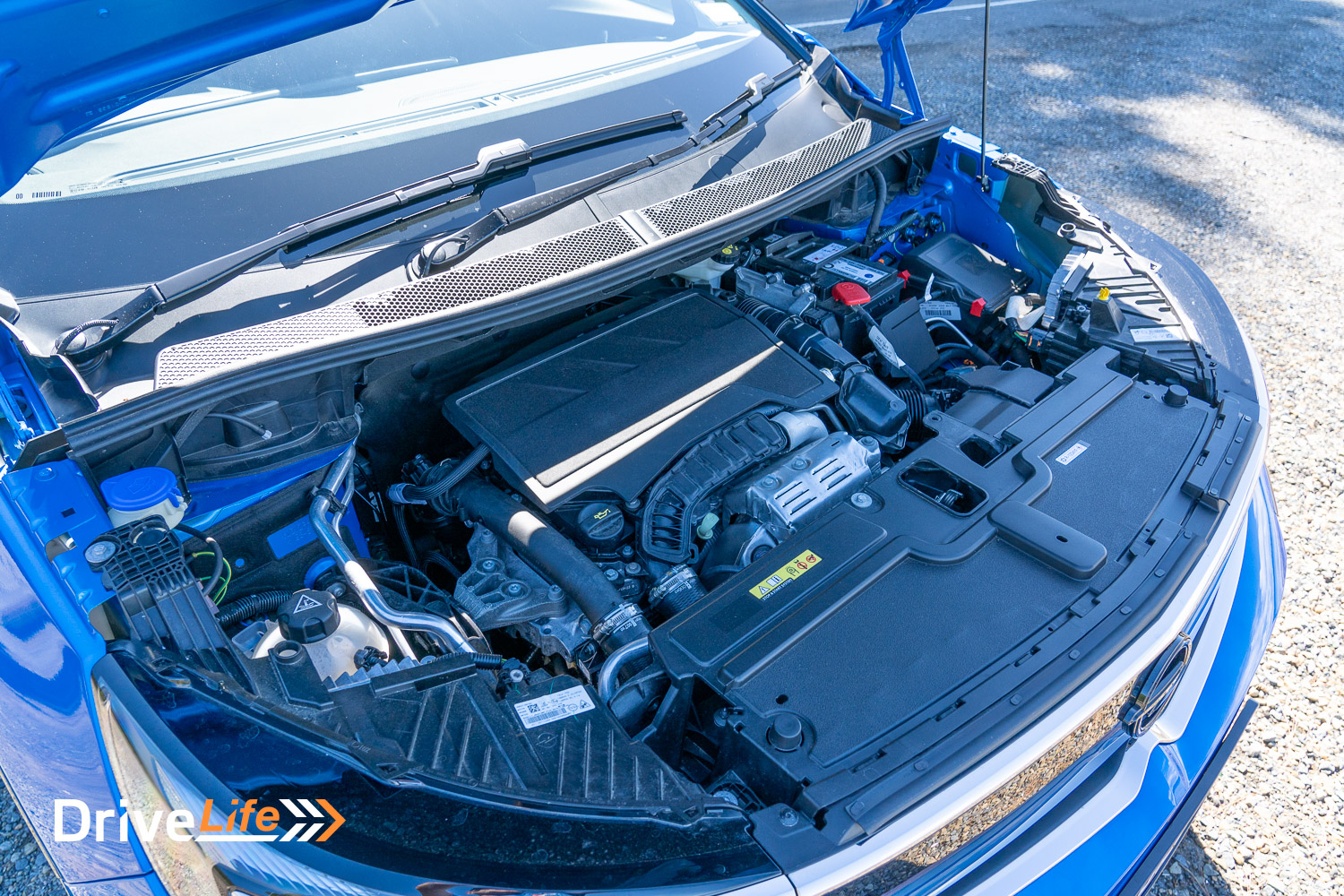
While it does take 10.3 seconds to get to 100km/h in the Grandland, it feels much faster than that. It’s one eager little engine, always wanting to please you.
Bolted to that amazing engine is an 8-speed automatic transmission. It’s perfectly mated to the engine, with generally the right gear at any time. It’s smooth too, with great changes up and down the ‘box. You can’t ask for much more than that.
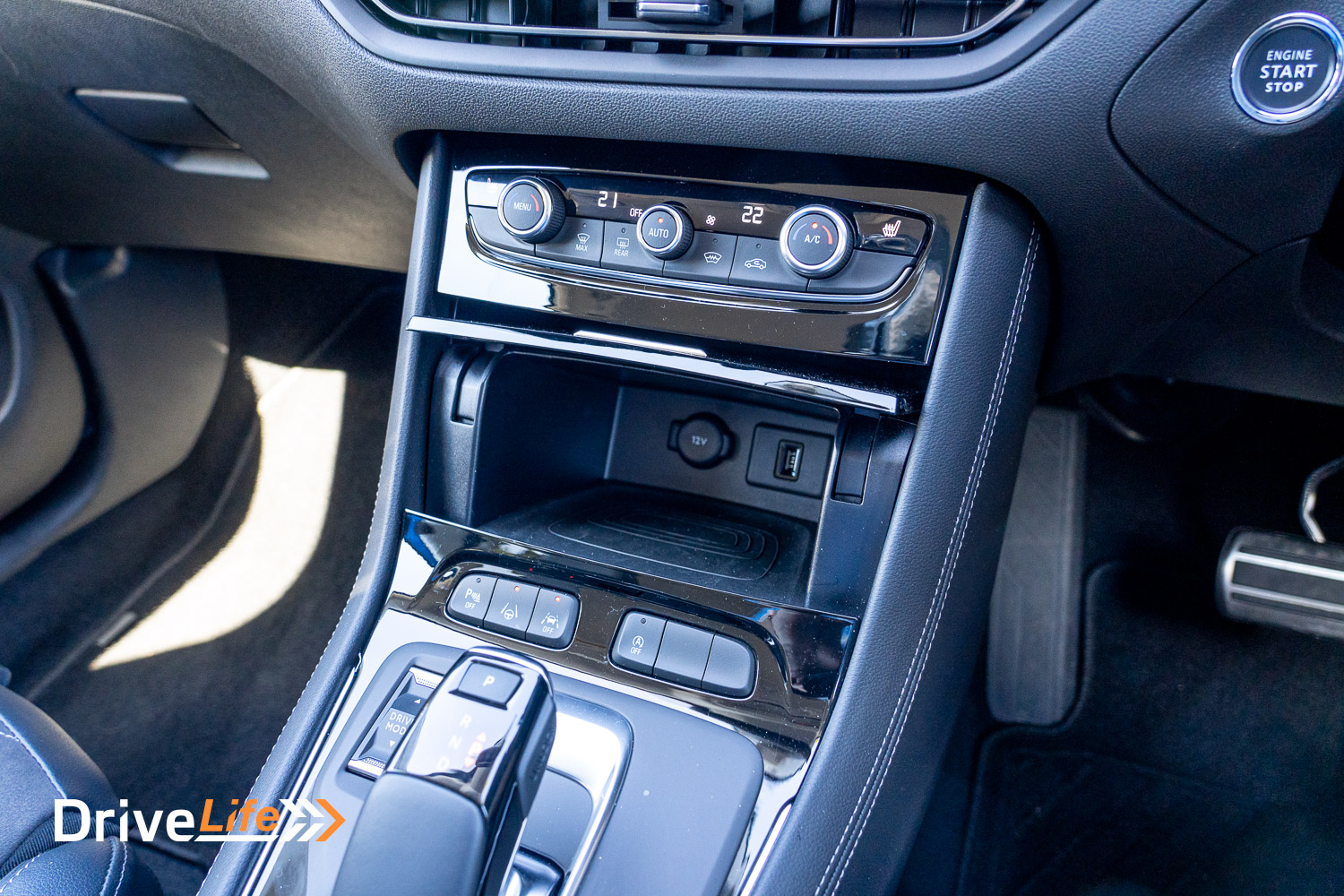
If there’s one downside to driving the Grandland, it’s jerkiness at low speeds. The transmission isn’t a dual-clutch unit that can be prone to low-speed jerkiness, but it’s the engine auto-stop function that feels at fault here. It kicks in too early and makes it difficult to bring the car to a nice, smooth stop at the lights. I felt like a newbie driver at times, and really had to concentrate to make for smoother stops. Turning off the auto-stop is an option, but it turns itself back on again when you start the car. Added to this are brakes that are touchy at low speeds, and it results in a car that could do so much better with a little bit of tweaking.
Still, there are other parts of driving the Grandland that make up for those slow-speed stops. The ride is excellent; always smooth and obviously of French design. Visibility is generally very good, although the C pillars are pretty chunky. As you’d expect, blind spot monitoring is in place and works well.
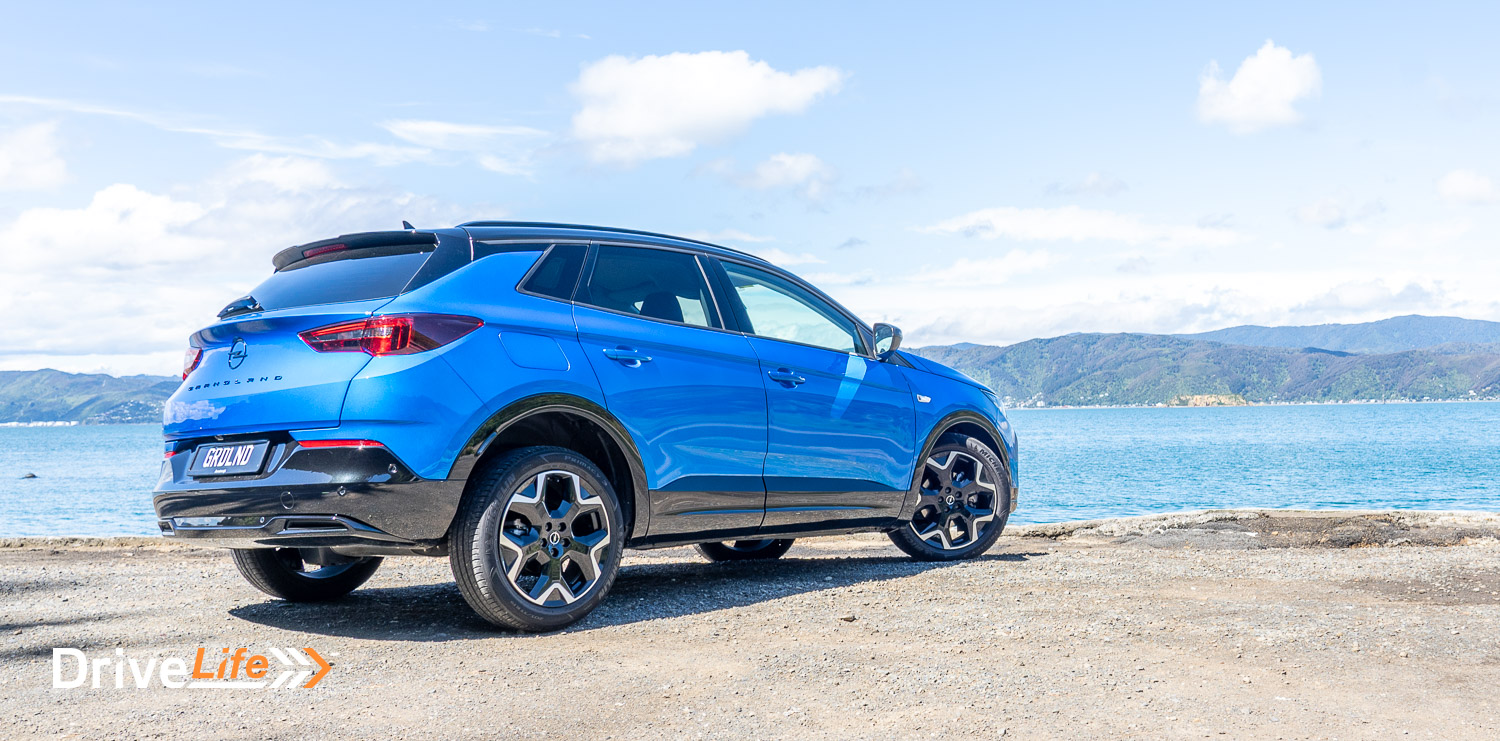
On the motorway, wind noise is very well controlled, as is road and tyre noise. Along with that whisper-quiet engine (on a steady throttle, at least), driving on the open road or motorway is stress-free and easy.
Like other Opels, you get three drive modes to choose from: Eco, Normal, and Sport. I tried them all and after a short time, left the car in Normal mode. Eco mode is fine – especially with all that torque at hand – but the car reverts to Normal mode as soon as you restart it. Ditto Sport mode – yes, the Grandland is a little perkier in this mode, but not enough for me to choose it over Normal mode.
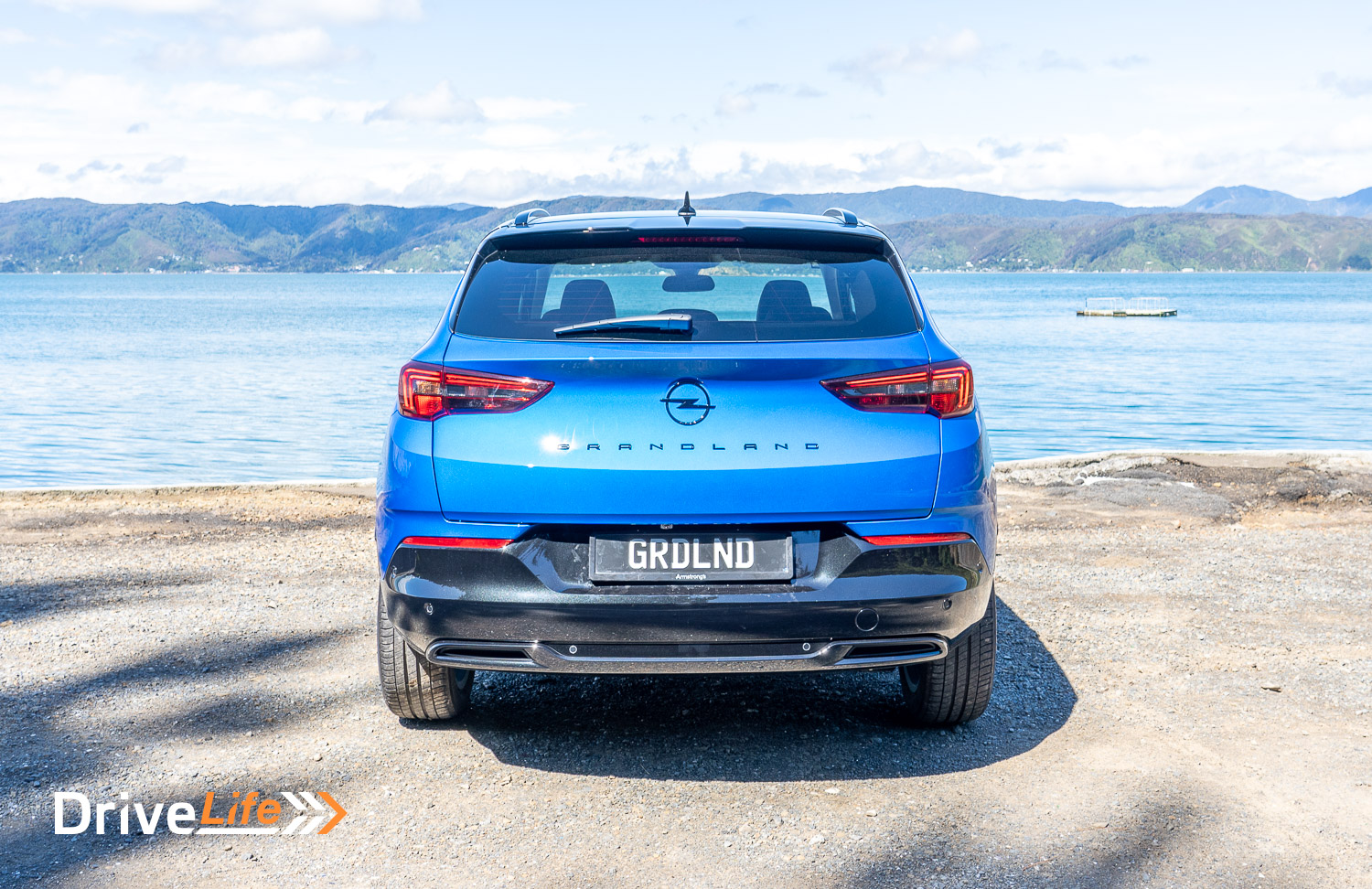
If you decide to push the Grandland around some corners, you’ll find somewhat rolly-polly handling; a smooth ride has a trade-off in handling. It’s not scary, but the car prefers to be driven in a more gentlemanly manner. If you push on past that rolling in the corner, the car will move into understeer but the grip remains reasonably good. If I was to describe the handling, I’d call it ‘safe’.
The seats probably don’t help much with going a bit harder in the corners – there’s not a lot of side support. I think we’re getting into the biggest issue I had with the Grandland: the seats. While this is a car you sit on and not in, I could just not get the seating position right for me, and the lower part of the seat felt like it was digging into my back a little. I never felt really comfortable.
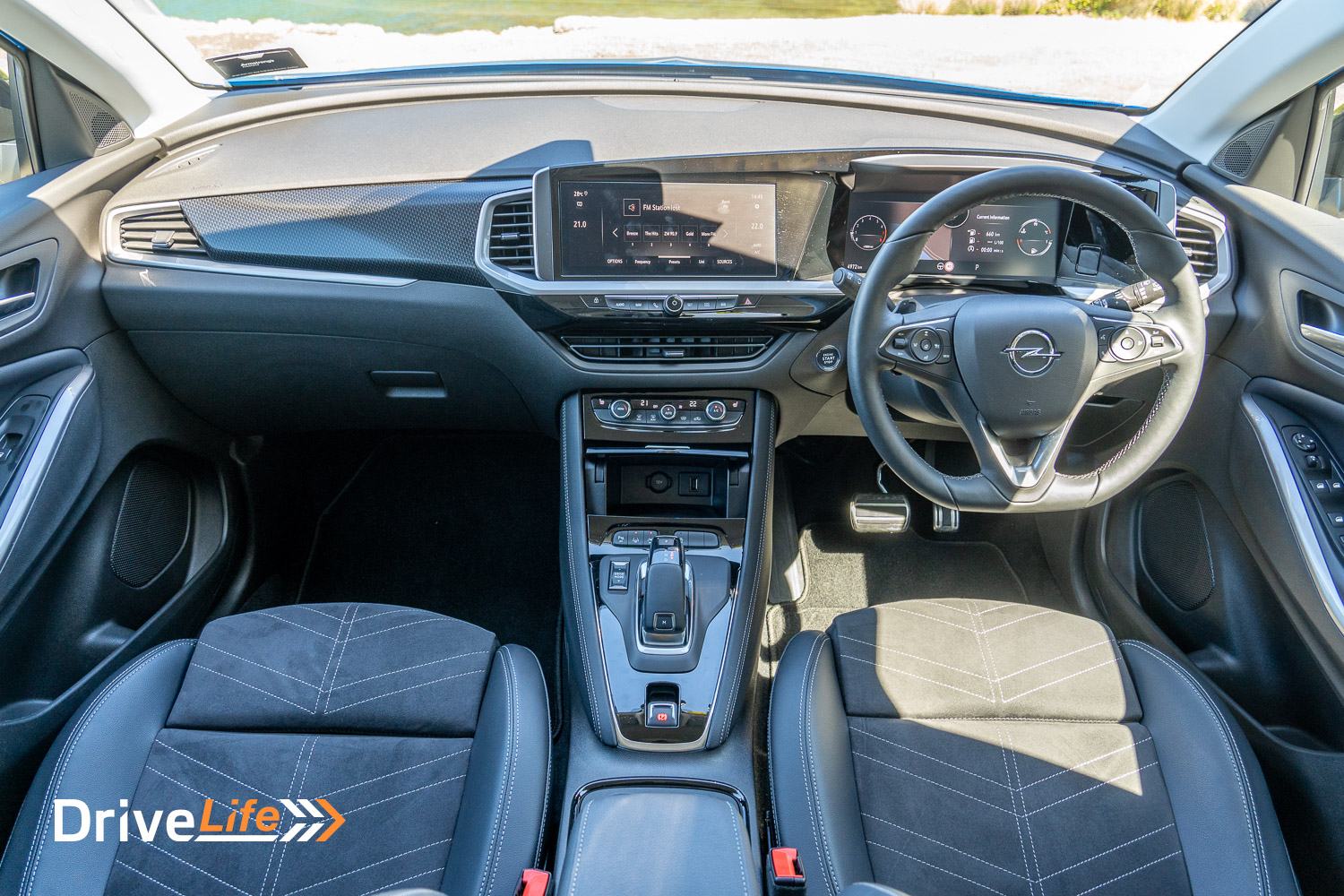
Ahead of the driving position is the small instrument cluster, something we are seeing a lot more of. The dash in the Grandland is clear and crisp, and you have some customisation around the layout, including:
- Navigation
- Dials
- Personal
- Computer
- Minimum
Each is distinctively different, although I ended up living with Minimum on a day-to-day basis; with our police solely focussed on speed and nothing else, having a huge digital speedo and little else feels essential in the desire to avoid speeding tickets. With a smooth and quiet engine, it’s easy to let your speed creep up without realising it.
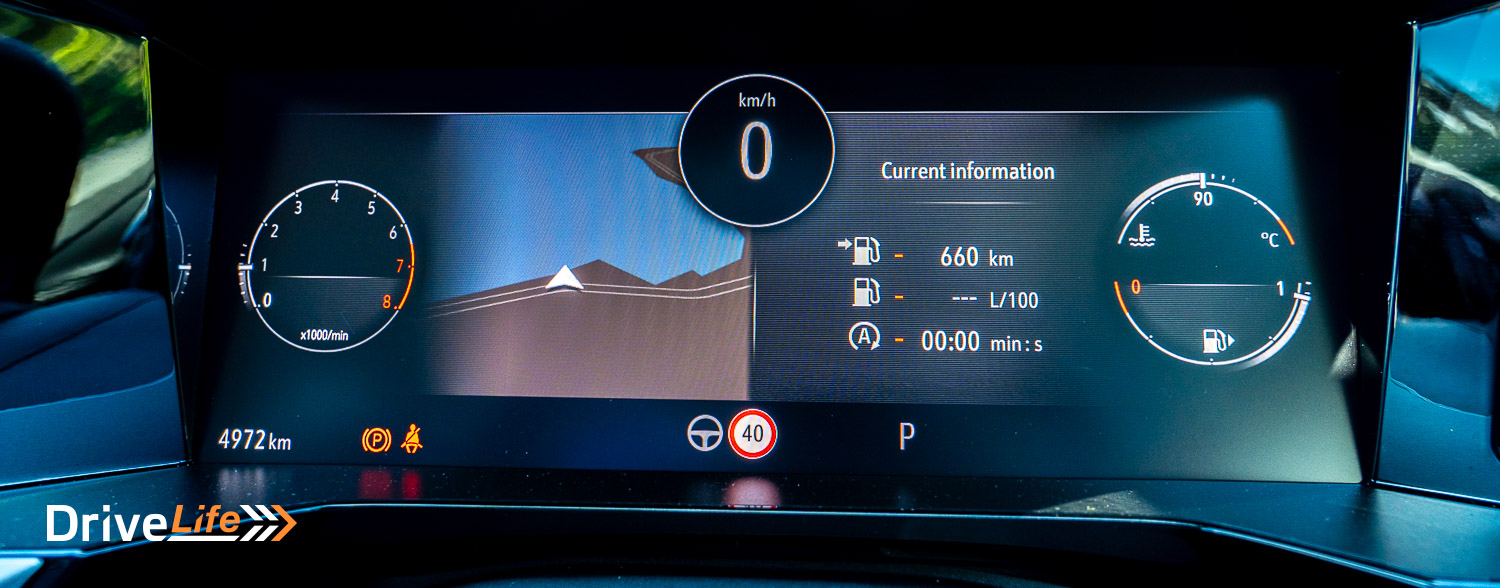
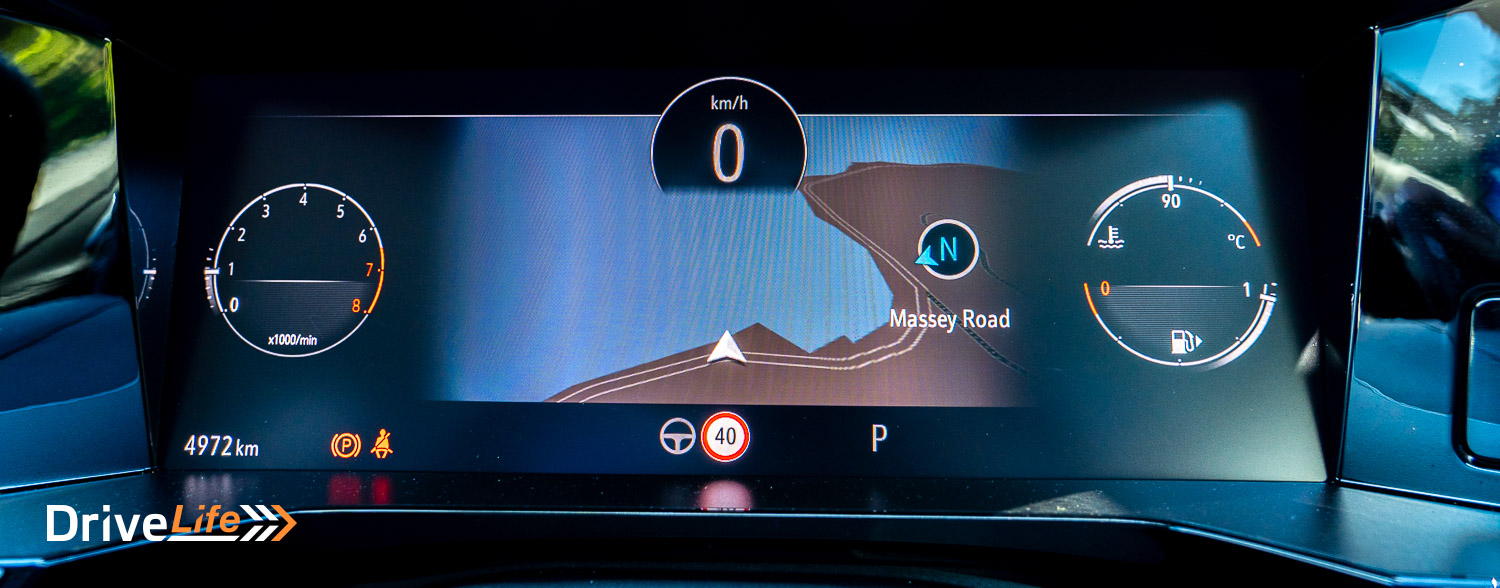
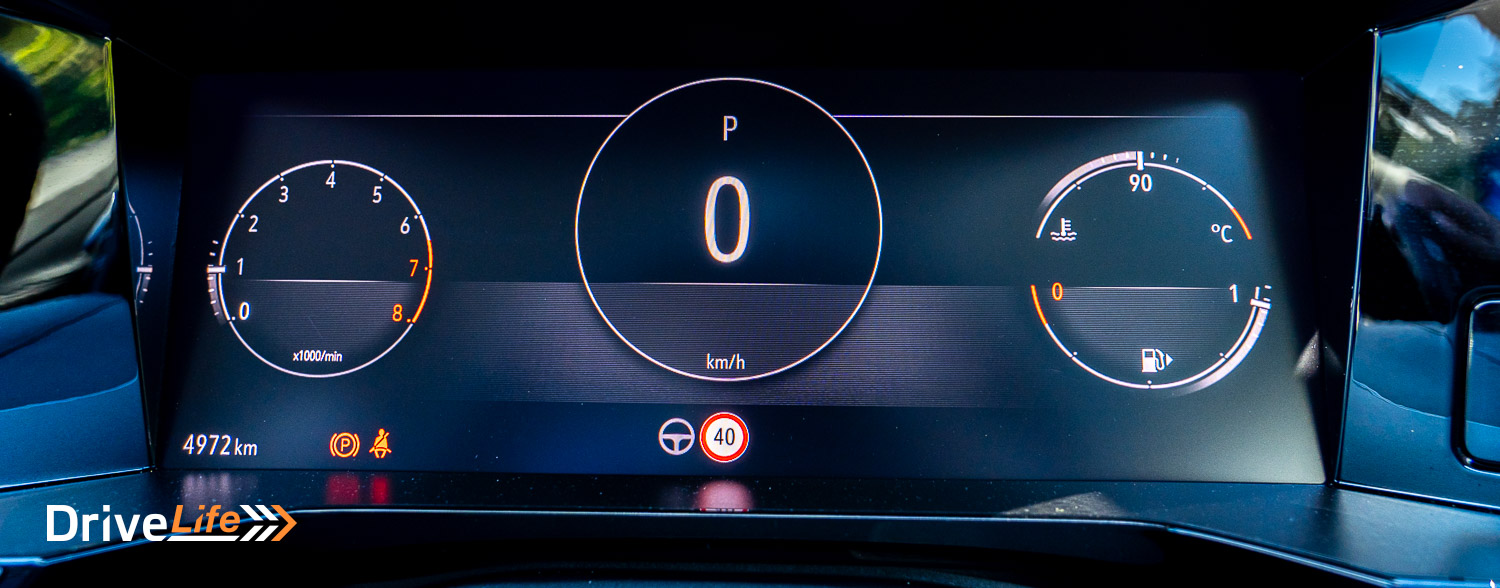
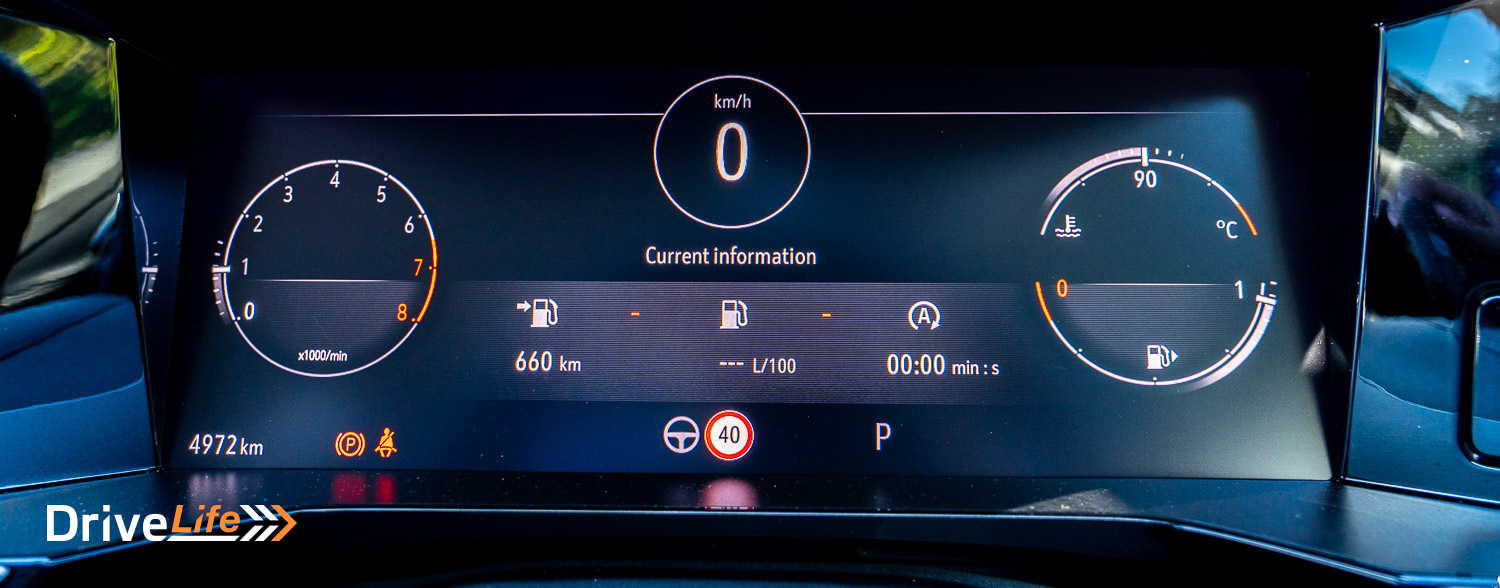
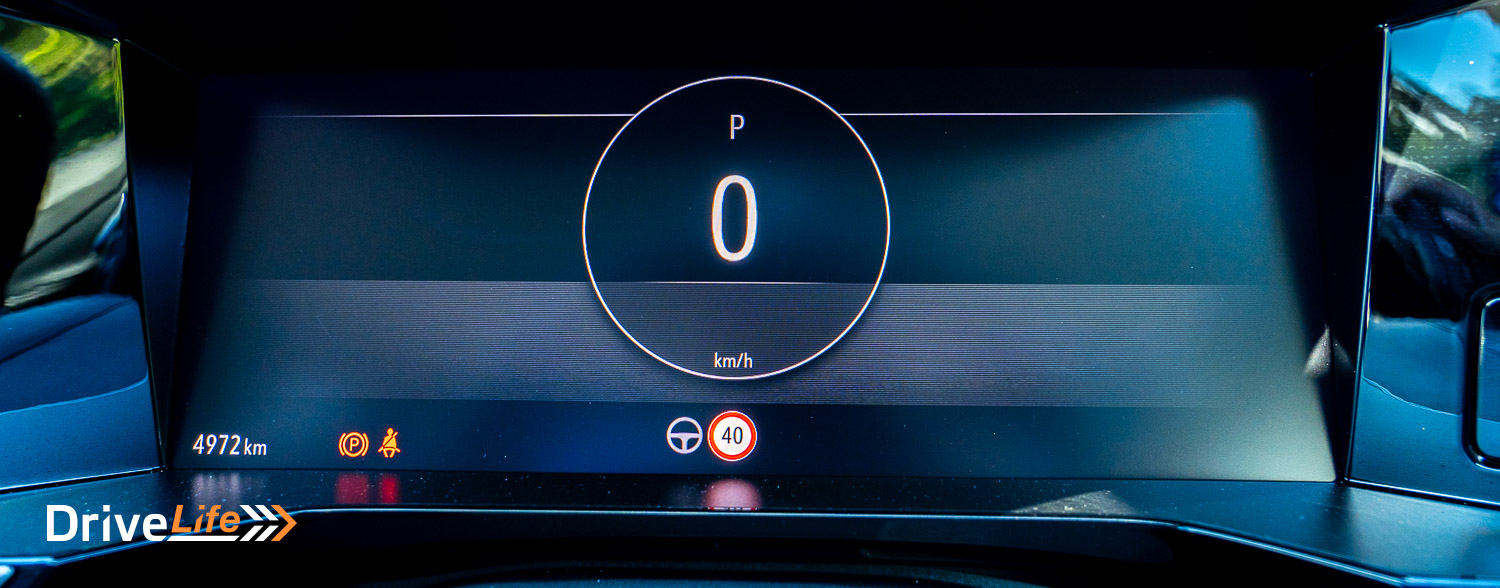
That chunky flat-bottomed steering wheel feels excellent to hold, and the controls are well laid out and simple to use. I applaud Opel for putting the heated steering wheel button right there on the wheel itself. It’s painful when you have to go hunting through infotainment menus to turn your heated steering wheel on. Yes, I know – it’s a First World problem, but Opel has it figured out nicely.
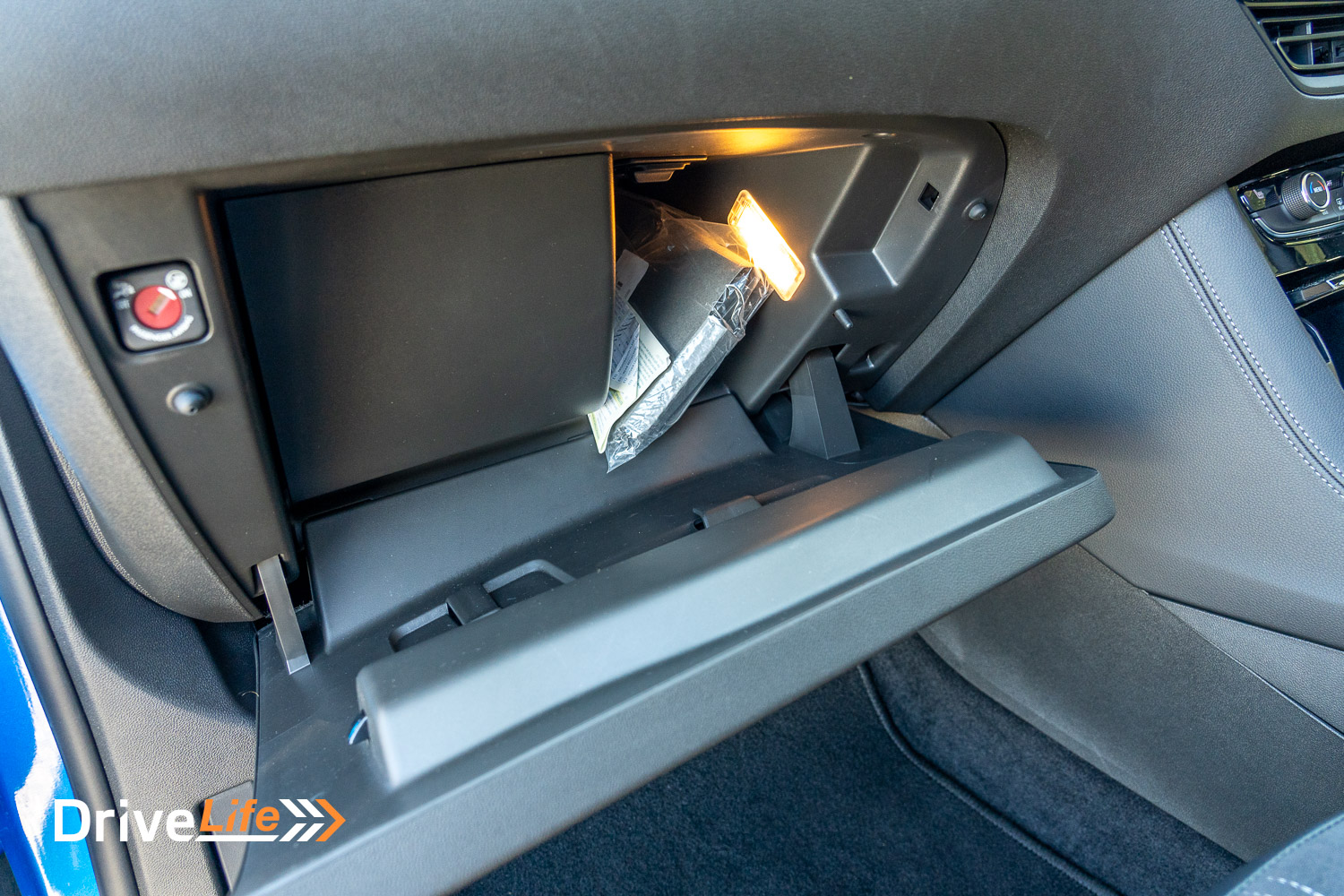
While the steering wheel controls are almost perfect, the infotainment system could do with some work. It can be quite laggy between screens, and there is no home page; you simply select Navigation, Audio, or Phone and that’s it. The screen is easily wide enough for a split-screen home page, so hopefully we’ll see this in a future update.
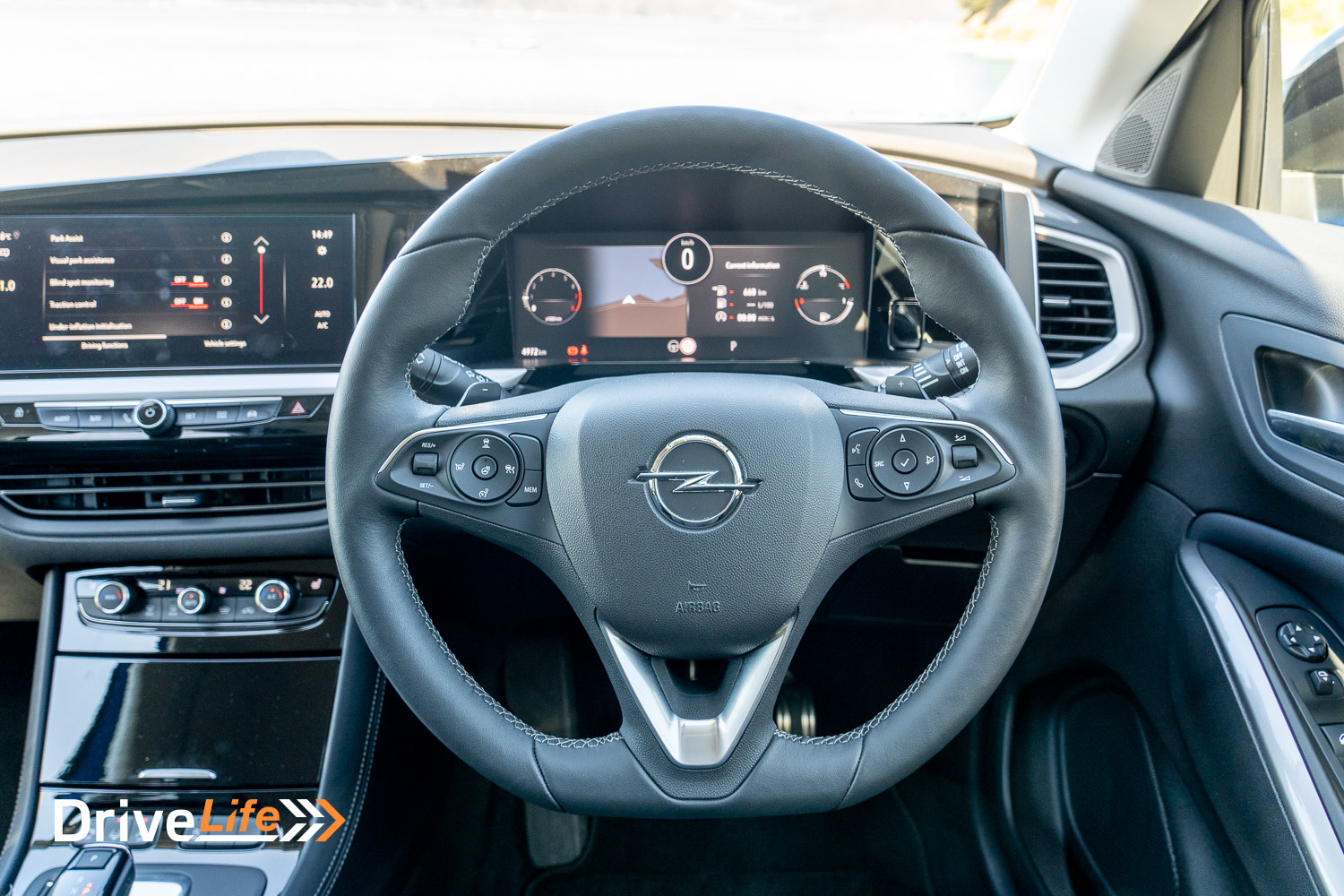
Weirdly, there is no browsing of your phone’s media when using Bluetooth; you can flick through track by track using the steering wheel controls, but to browse you need to pull over and pick up your phone. The Grandland has Apple CarPlay and Android Auto, but you will need to plug in a USB cable to make them work since it’s not wireless (yet).
If there was one other frustrating thing about the Grandland (and other Opel models), it’s that the audio reverts to the radio every time you start the car. So if you get out of the car after listening to music via Bluetooth, it’s going to switch back to the radio. Again, a First World problem but a very annoying one. Please, Opel, fix this.
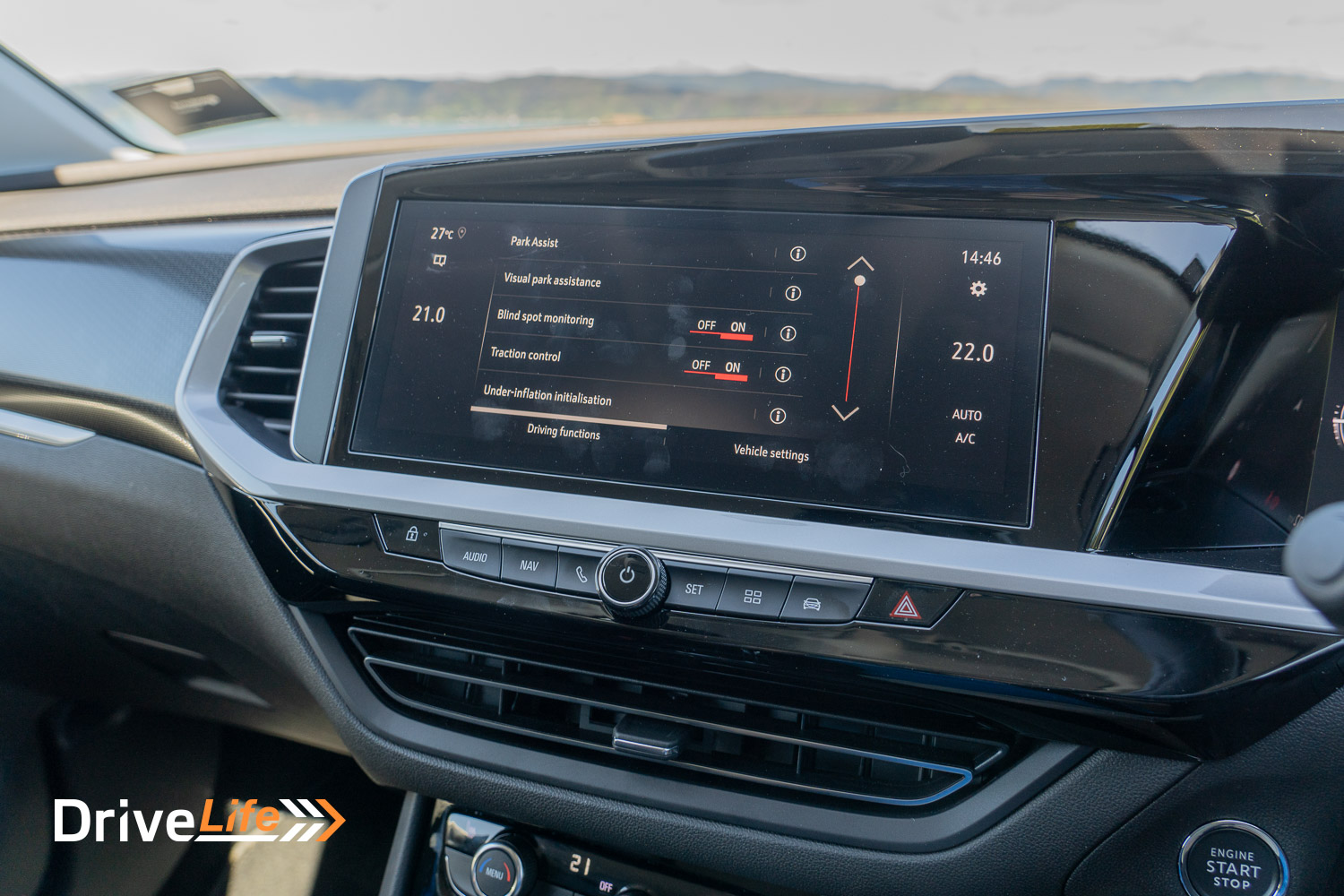
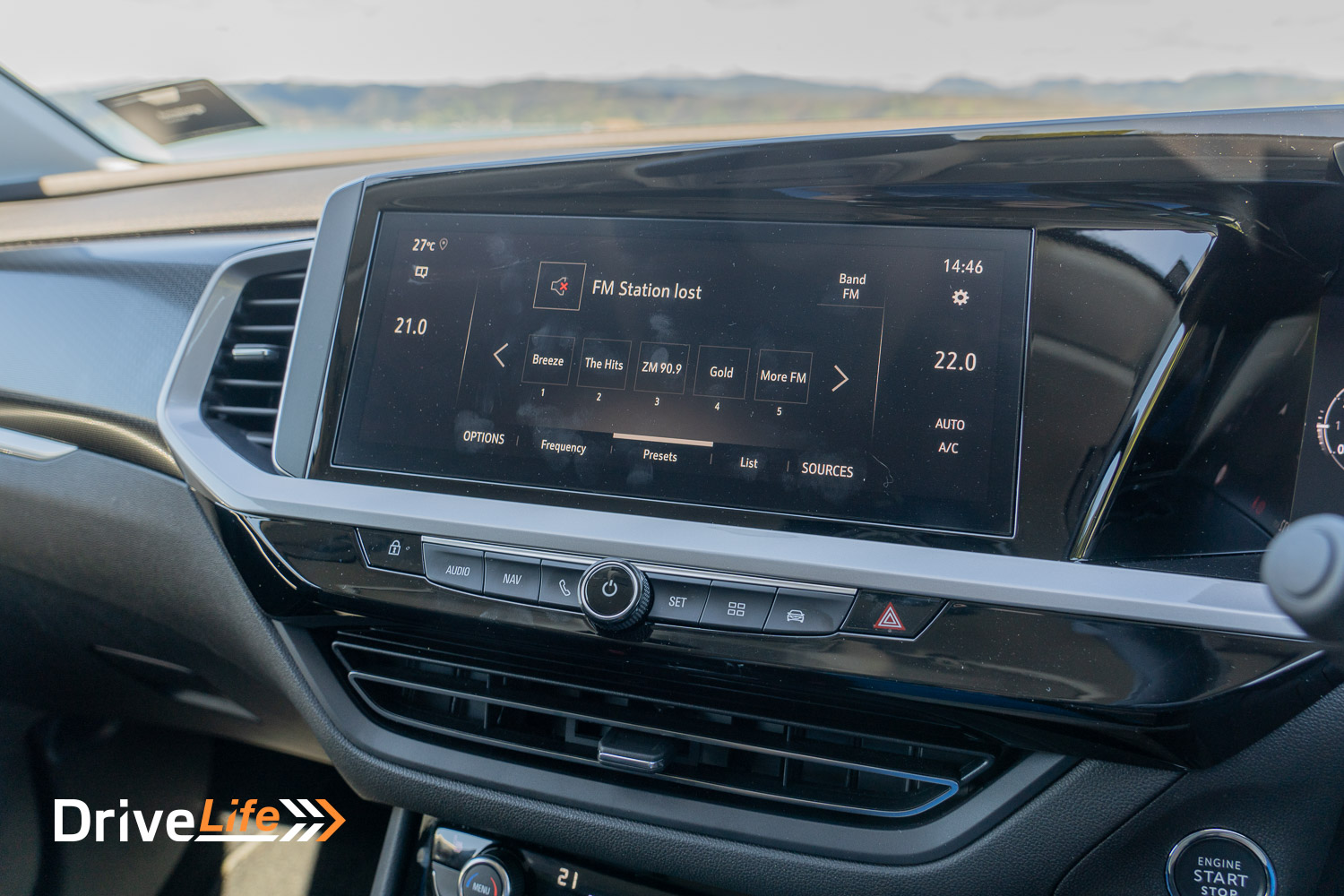
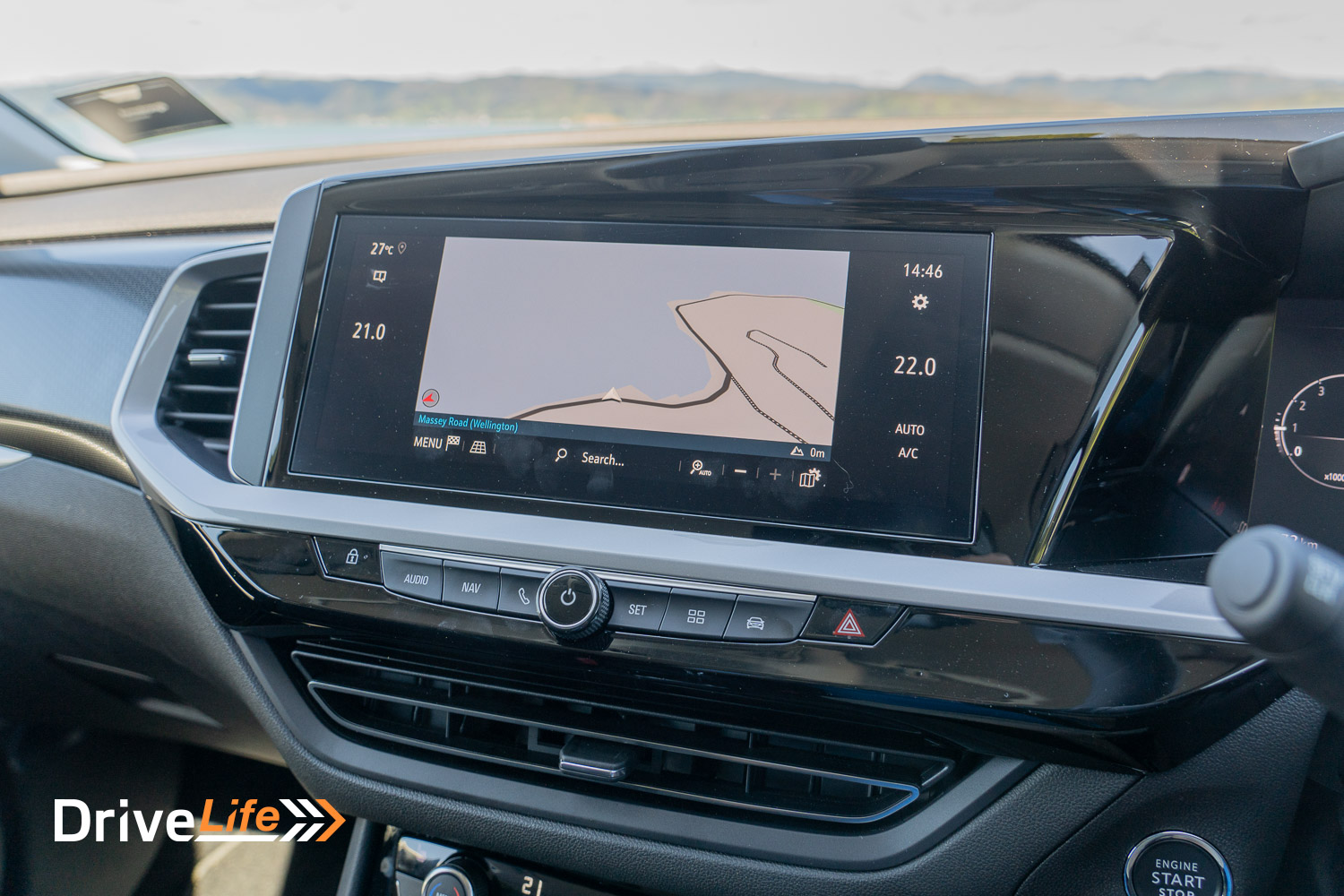
Back to positive things about the Grandland, and there are plenty. The adaptive cruise control works well, with nicely smooth acceleration when (for example) someone exits your lane. The autosteering feature works well too, again – nice and smooth.
Another great aspect of the Grandland is the adaptive LED headlights. Casting a long, broad beam of light they pierce through the night. Like so many other adaptive LED headlights they absolutely blitz ‘normal’ LED headlights, and it’s hard to go back after using them. I had one small issue with our test car’s headlights, where they wouldn’t switch on to high-beam quickly enough, but that may have just been on our test car.
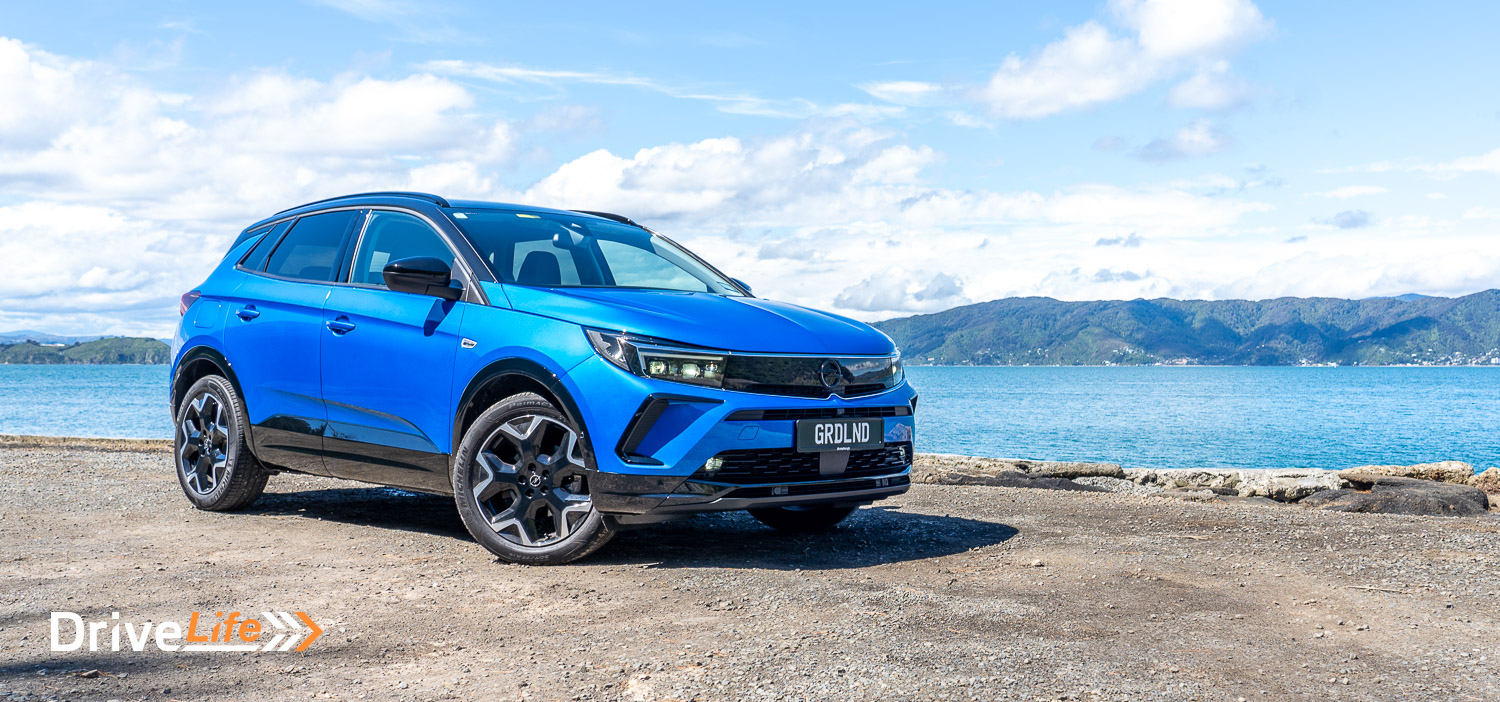
With just 1,200cc, you would think that fuel economy would be outstanding in the Grandland, but bear in mind it weighs in at 1,386kg. That’s not super heavy, but it’s around 150kg more than the Opel Mokka SRi with the same engine. Opel suggests fuel consumption of 5.4L/100km for the Grandland SRi, while in just under 700km of real-world driving, I managed to get 6.9L/100km out of our test car. That’s still a reasonable figure and is actually better than the 7.2L/100km we got when testing out the Mokka SRi.
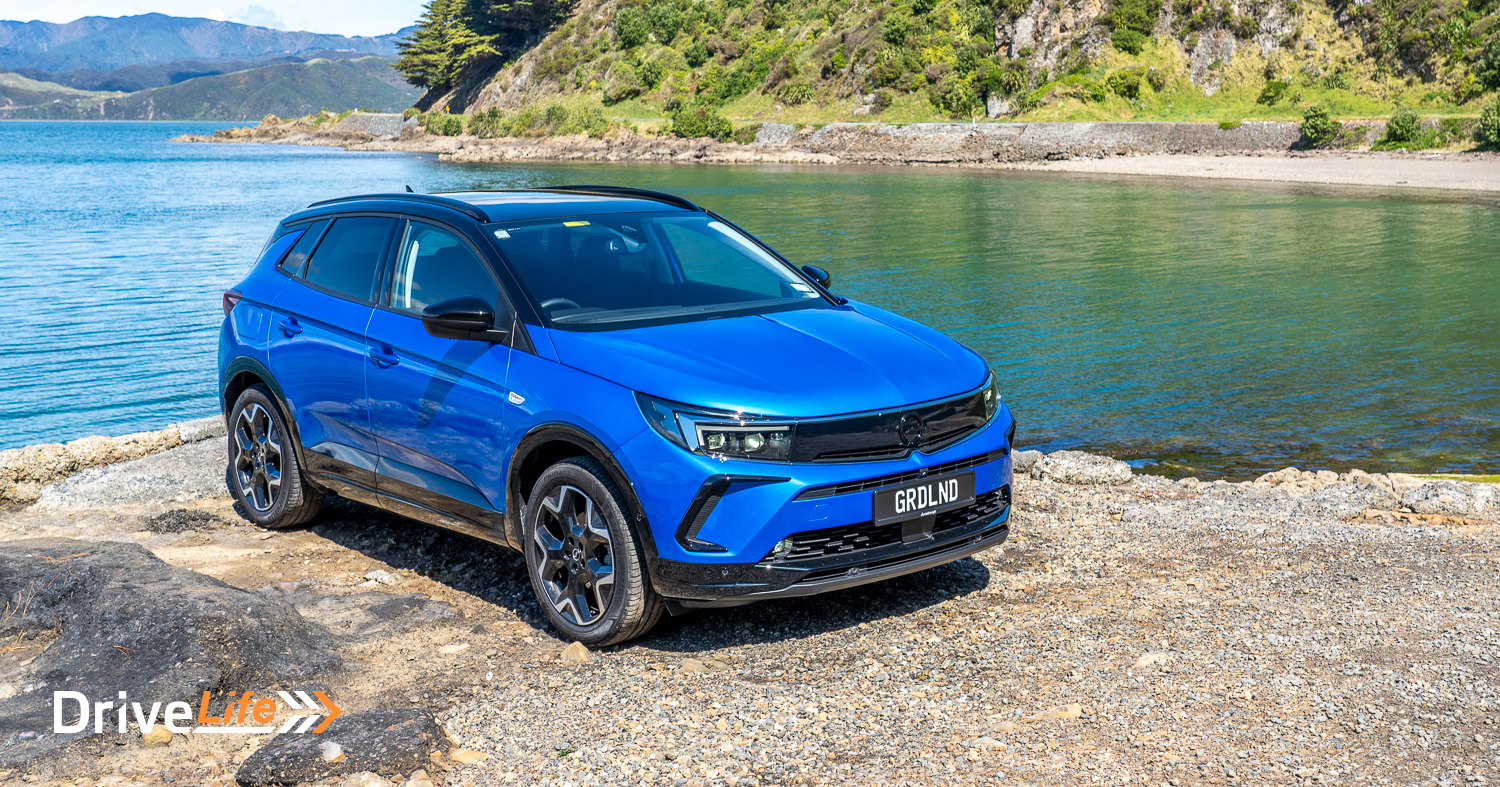
2023 Opel Grandland SRi – Specifications
| Vehicle Type | Compact SUV |
| Starting Price | $46,990 |
| Price as Tested | $47,940 |
| Engine | 1.2-litre, 3-cylinder petrol-turbo |
| Power, Torque kW/Nm | 96/230 |
| Transmission | 8-speed automatic |
| Spare Wheel | Puncture repair kit only |
| Kerb Weight, Kg | 1,386 |
| Length x Width x Height mm | 4477x1906x1609 |
| Boot Space / Cargo Capacity, Litres (seats up/seats down) | 514/1,652 |
| Fuel tank capacity, litres | 53 |
| Fuel Economy, L/100km | Advertised Spec – Combined – 5.4 Real-World Test – Combined – 6.9 Low Usage: 0-6 / Medium Usage 6-12 / High Usage 12+ |
| Towing Capacity Kg, unbraked/braked | 600/1,200 |
| Turning circle metres | 10.7 Small: 6-10m / Medium 10-12m / Large 12m+ |
| Warranty | 5 years, 100,000km vehicle warranty 5 years Roadside Assistance 3 Year Service Plan $1,590 5 Year Service Plan $2,790 |
| Safety information | ANCAP Rating – not rated Rightcar.govt.nz – 5 Stars – GRDLND |
Have you enjoyed this review? Be sure to join our monthly email newsletter list so you don’t miss a single car review!


